35 classic movies based on novels
As if you need more to add to your to-read list
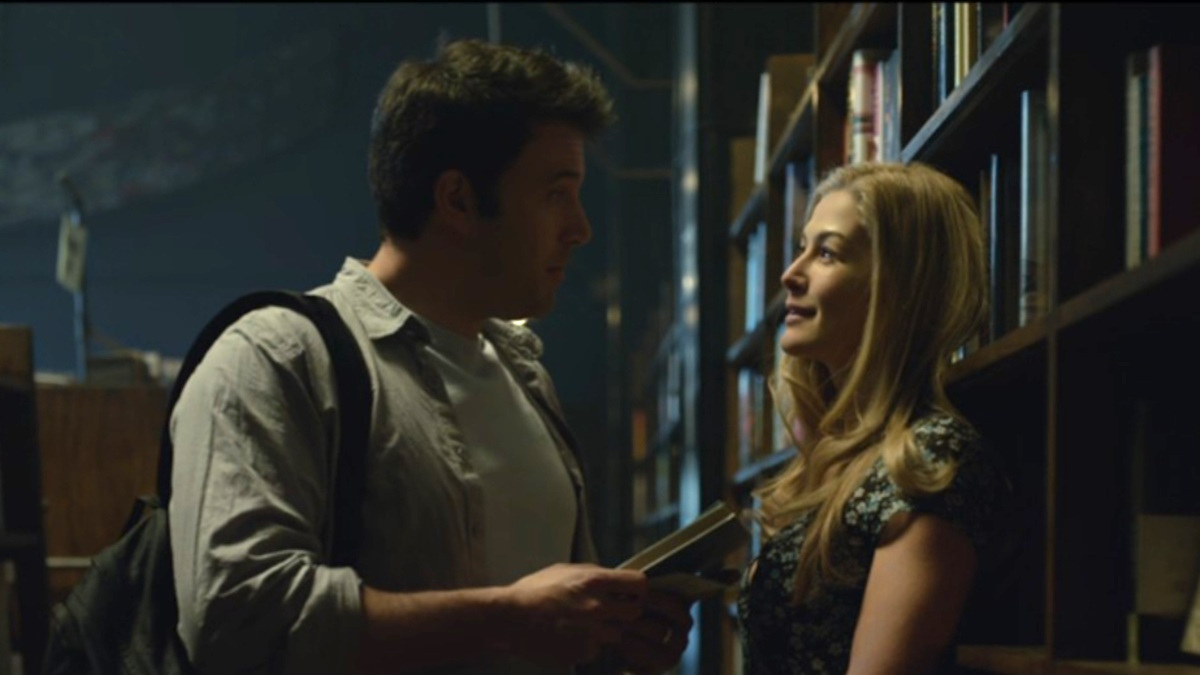
Some of the greatest movies of all time don't start out as half-completed screenplays in a writer's drawer. Frequently, they actually start out as books. From hardcover best-sellers to dog-eared paperbacks, novelists have given countless screenwriters in Hollywood the bones of a story to reinterpret and reshape into a more visual medium. With some of the most beloved movies of all time originating as books, it's safe to say it's a process that audiences are more than familiar with. A lot of best-sellers become hit movies, but which classic novels have made the greatest movies?
The practice of adapting movies from literary works is as old as movies itself. In 1910, the silent movie Frankenstein adapted Mary Shelley's hit novel, being among the first movies to adapt a piece of literary fiction. A few years later, German filmmaker F.W. Murnau failed to secure the rights to Bram Stoker's novel Dracula, prompting him to make his unauthorized adaptation under a different title: Nosferatu.
The practice of cinematic adaptations of novels continued throughout the 20th century. In modern times, film producers actively seek out the rights to books, as the logic dictates that a book with a built-in audience means all those readers are would-be moviegoers, all eager to see how the movie gets the book "right."
Spanning genres from crime to horror to romantic comedies and more, these are 35 classic movies that are based on novels.
35. The Devil Wears Prada (2006)
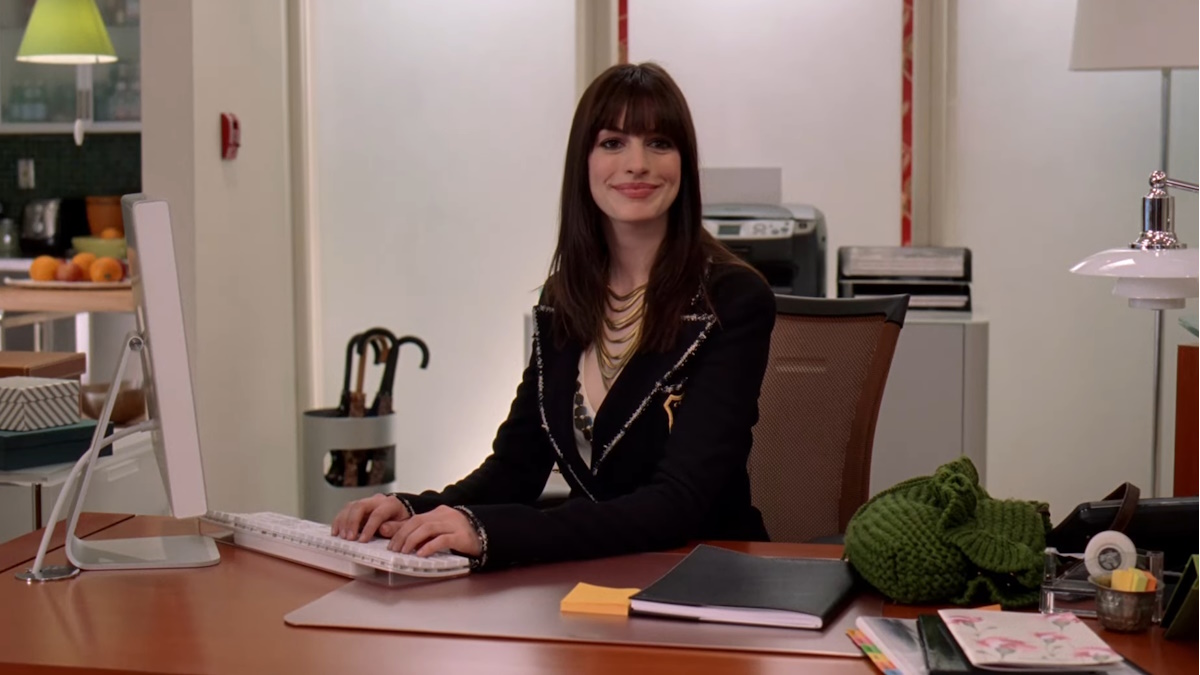
Before making her debut as a novelist, magazine writer Lauren Weisberger spent nearly a year working as an assistant to Vogue editor Anna Wintour. Later, Weisberger mined the experience to write The Devil Wears Prada, a roman à clef about an outsider to the fashion industry who gets a front-row, top-level seat working directly under one of its most prolific (and overbearing) titans. In 2006, Weisberger's book became a hit movie with Anne Hathaway in the lead role and Meryl Streep in her now-iconic performance as cutthroat boss Miranda Priestly.
34. Carrie (1976)
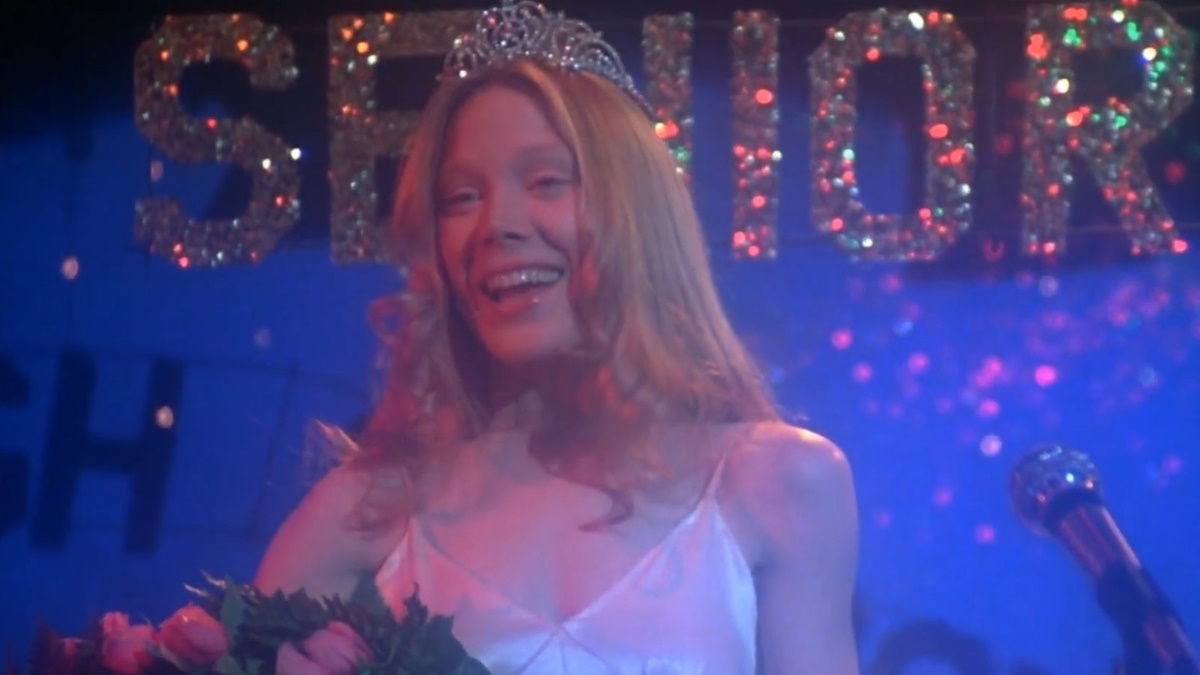
If your kid has a bullying problem, sit them down for a viewing of Carrie, Brian De Palma's enduring teen horror classic. Sissy Spacek stars as a shy teenager who comes to harness supernatural telekinetic powers, which she uses to exact revenge on her high school tormentors. The movie takes after Stephen King's literary debut from 1974, which was only the beginning of an exceptionally prolific writing career that spawned even more best-sellers that, in turn, inspired more adaptations across movies and TV. But Carrie is still iconic, with the movie's key set-piece involving a bucket of pig's blood the ultimate embarrassment and motivation for vengeance.
33. Gone Girl (2014)
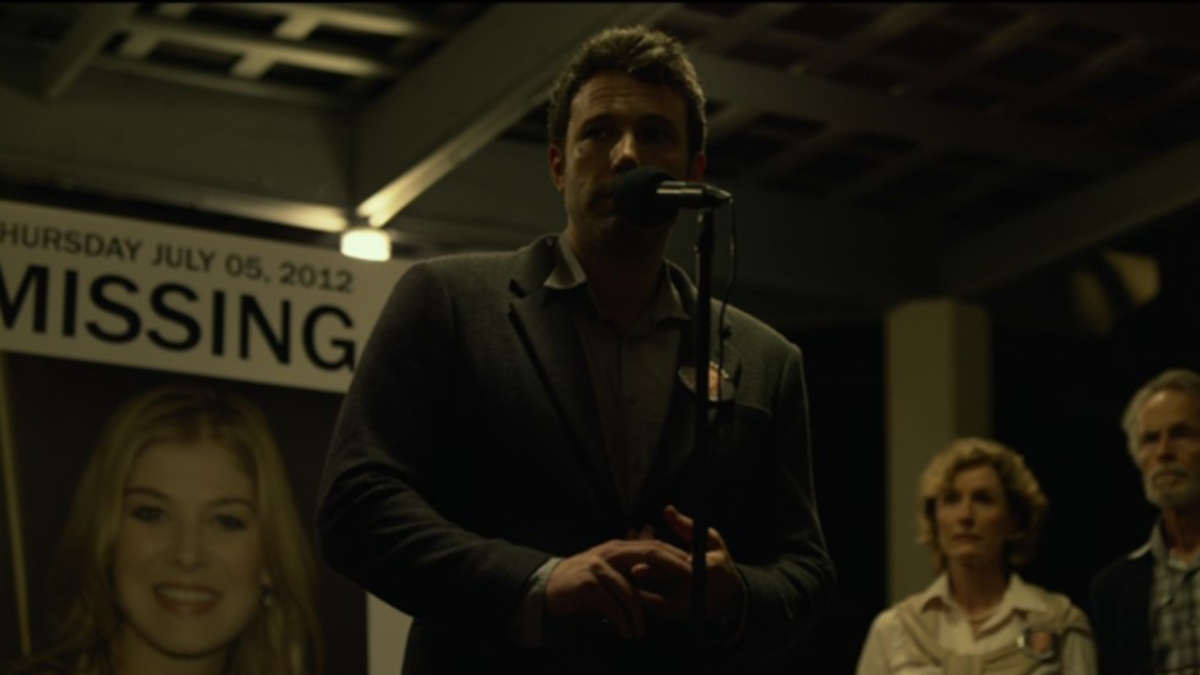
After getting laid off from Entertainment Weekly where she worked as a TV critic, writer Gillian Flynn leveraged her skillset to authoring fiction. In 2012, her psychological thriller Gone Girl became a massive hit, inspiring an acclaimed movie adaptation from director David Fincher and starring Ben Affleck and Rosamund Pike. Both the movie and Flynn's novel follows a seemingly perfect married couple whose interior lives are on the fritz. Eventually, husband Nick (played in the movie by Affleck) is a key suspect in the disappearance of his wife Amy (Pike). Full of twists and pregnant with suspense, Gone Girl is a true classic of the 2010s, a dark story that underscored the uneasy zeitgeist and the complexities of modern day marriage.
Sign up for the Total Film Newsletter
Bringing all the latest movie news, features, and reviews to your inbox
32. Master and Commander: The Far Side of the World (2003)
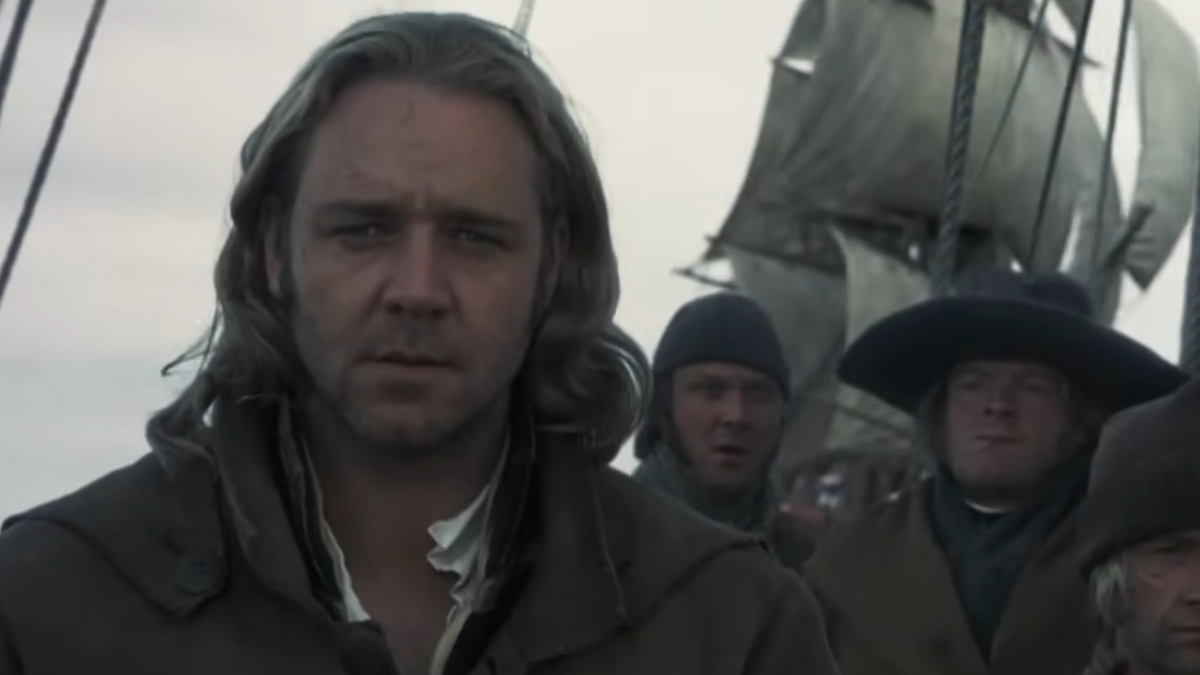
The mysterious and elusive author Patrick O'Brian, who died in 2000, left behind 20 whole novels in his Aubrey-Maturin series – books set during the Napoleonic Wars that chronicle the friendship between Royal Navy shipmates. However, only one of these seafaring epics made it to screen: 1969's Master and Commander, adapted to a mega-budget 2003 blockbuster Master and Commander: The Far Side of the World starring Russell Crowe. While the movie grossed a whopping $212 million worldwide, the movie never became a franchise that lived up to the scale of O'Brian's books.
31. The Hunger Games Series (2012 - 2015)
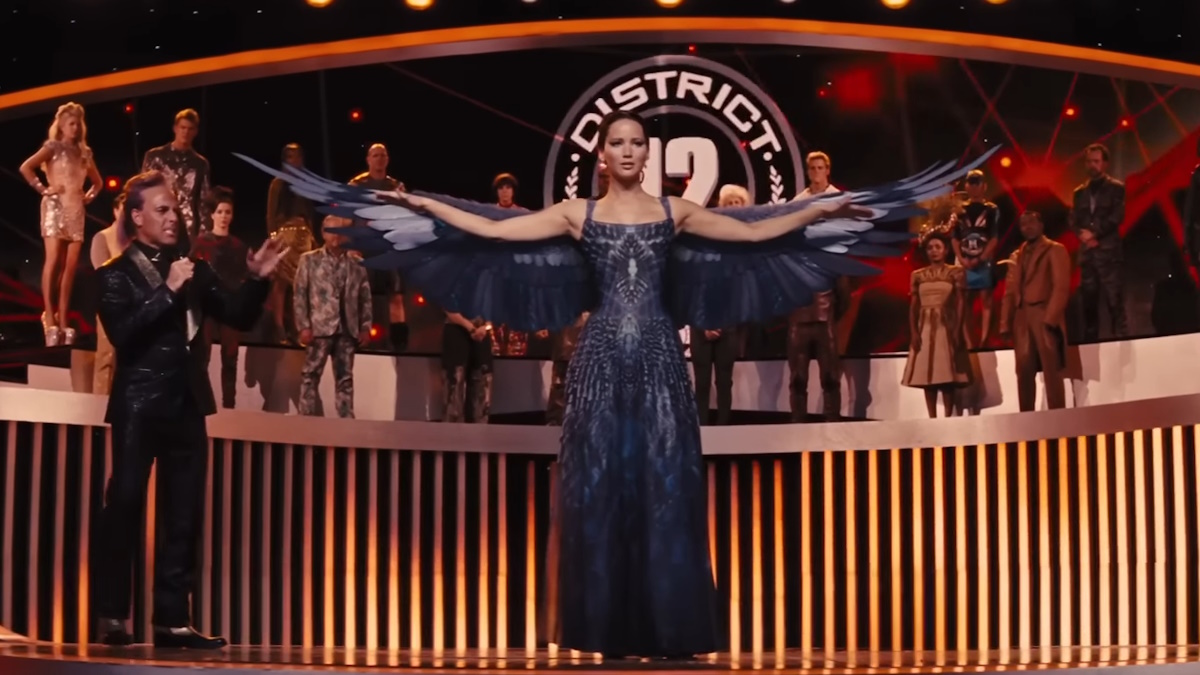
One night while channing surfing, author Suzanne Collins was struck by the contrast of seeing reality TV competitions and news footage of the Iraq War. The juxtaposition led to her writing The Hunger Games, the first in a major hit book series that remapped the parameters of contemporary young adult fiction. Set in a dystopian future ruled by a totalitarian government, young children are randomly selected from across districts to compete in a televised battle royale called "The Hunger Games." The books inspired a major film franchise by Lionsgate, which in turn made Jennifer Lawrence – in the lead role of cunning, resilient protagonist Katniss Everdeen – into a new Hollywood "it" girl.
30. Battle Royale (2000)
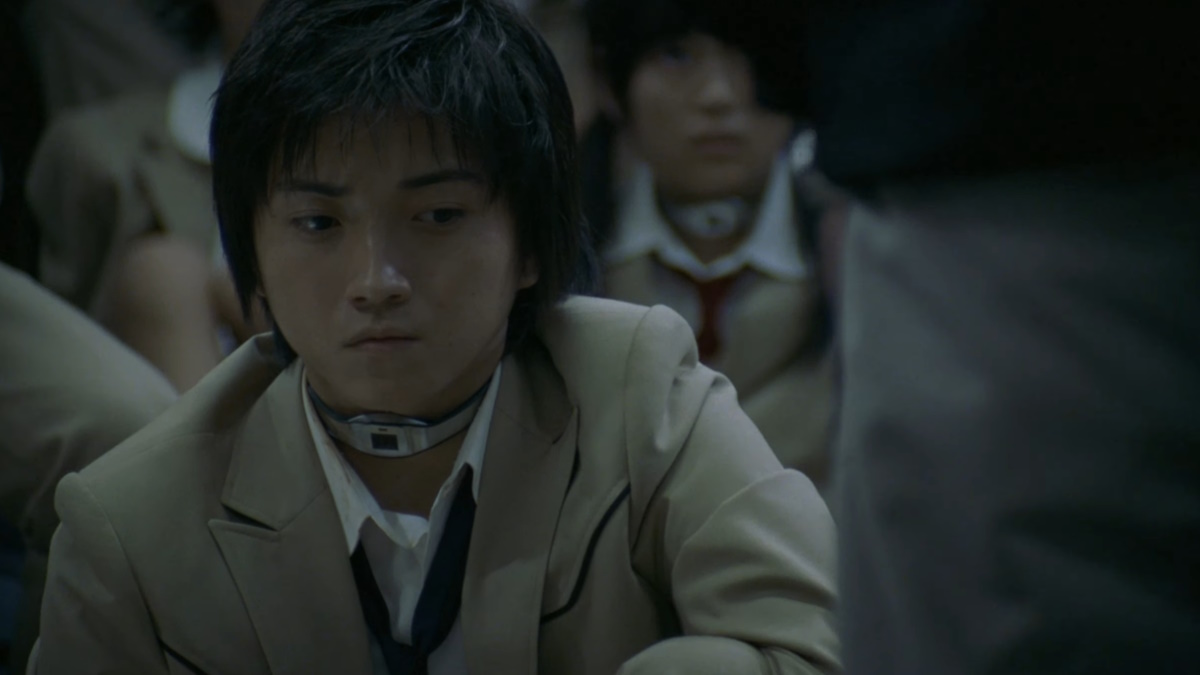
Battle Royale, both Koushun Takami's one and only novel from 1999 and its acclaimed film adaptation from 2000 (directed by Kinji Fukasaku), are intertwined as seminal works of fiction that not only defined unique Japanese anxieties at the turn of the century but influenced all of popular culture. Set in a futuristic fascist Japan, both versions of the story chronicle a class of randomly-selected high school students who are kidnapped by the government and forced to fight to the death on a remote island. Controversial for its graphic violence but renowned as smart social and political commentary, Battle Royale is synonymous with last man standing, winner-takes-all epics and even an entire genre of video games.
29. John Carter (2012)
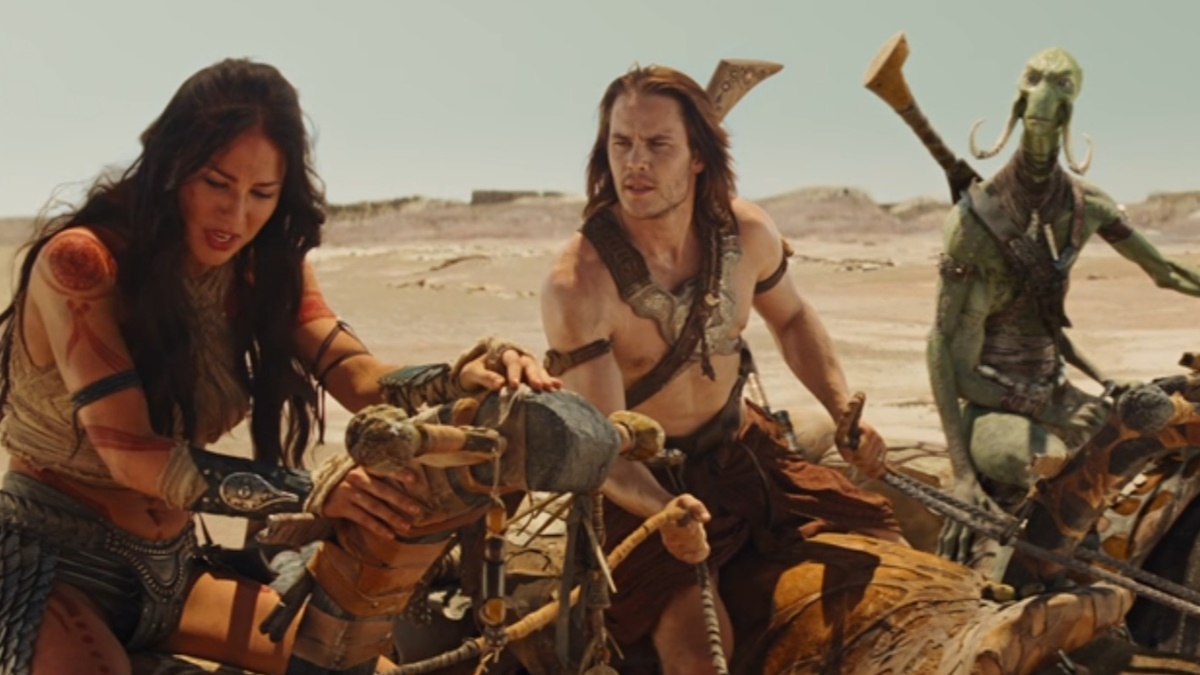
Disney had high hopes for John Carter in 2012. Eager to find a new evergreen franchise in the spirit of Pirates of the Caribbean, the studio nabbed the rights to Edgar Rice Burrough's John Carter and the Princess of Mars, published in 1912. (Although the book is in public domain, the name "John Carter" is still property of the Burroughs estate.) The story follows a Confederate veteran, John Carter, who winds up on the planet Mars and gets embroiled in an alien civil war as well as a romance with the beautiful princess Dejah Thoris. While Andrew Stanton's movie was acclaimed by critics and audiences, the movie flopped hard at the box office, becoming one of Disney's biggest disasters.
28. The Silence of the Lambs (1991)
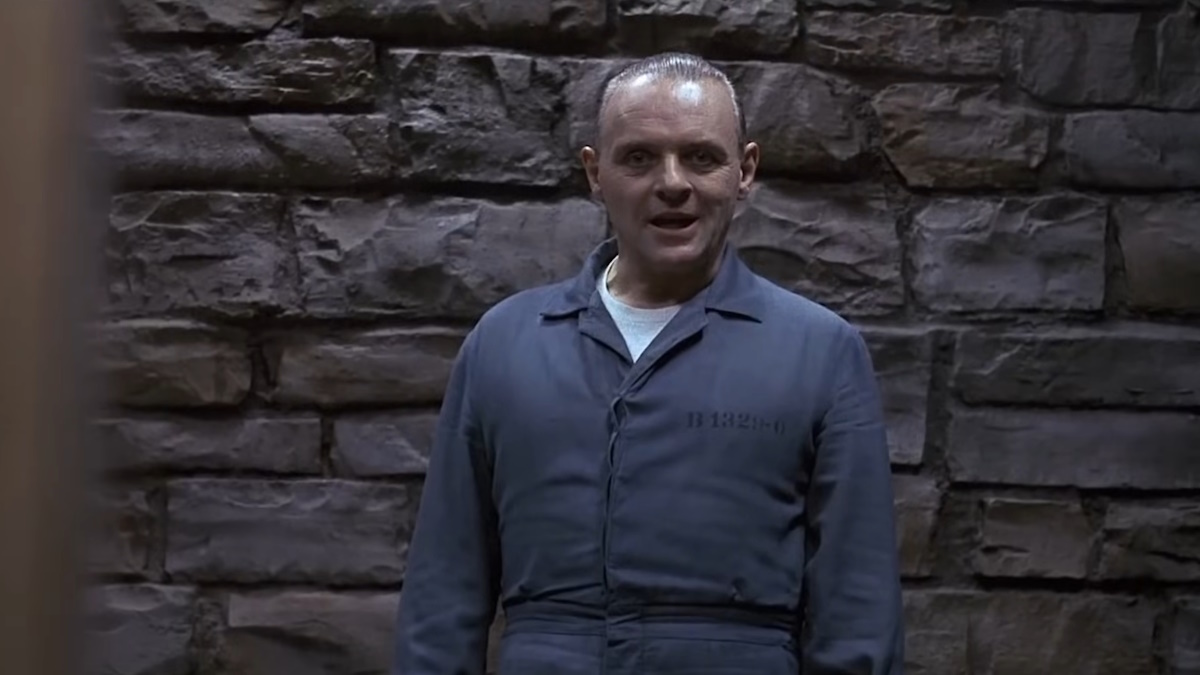
Thomas Harris' 1988 novel The Silence of the Lambs – a sequel to his '81 novel Red Dragon, both featuring the iconic villain Dr. Hannibal Lecter – became one of the greatest cinematic psychological thrillers of the '90s via director Jonathan Demme's Oscar-winning adaptation. Jodie Foster stars as FBI trainee Clarice Starling, who reluctantly seeks the advice of imprisoned Dr. Lecter to capture another serial killer, Buffalo Bill (Ted Levine). While Michael Mann's disconnected film version of Red Dragon has spent years garnering acclaim as an underappreciated cult film, Demme's Silence of the Lambs is a towering, renowned masterwork where Lecter pierces your own gaze and never seems to let go.
27. The Hitchhiker's Guide to the Galaxy (2007)
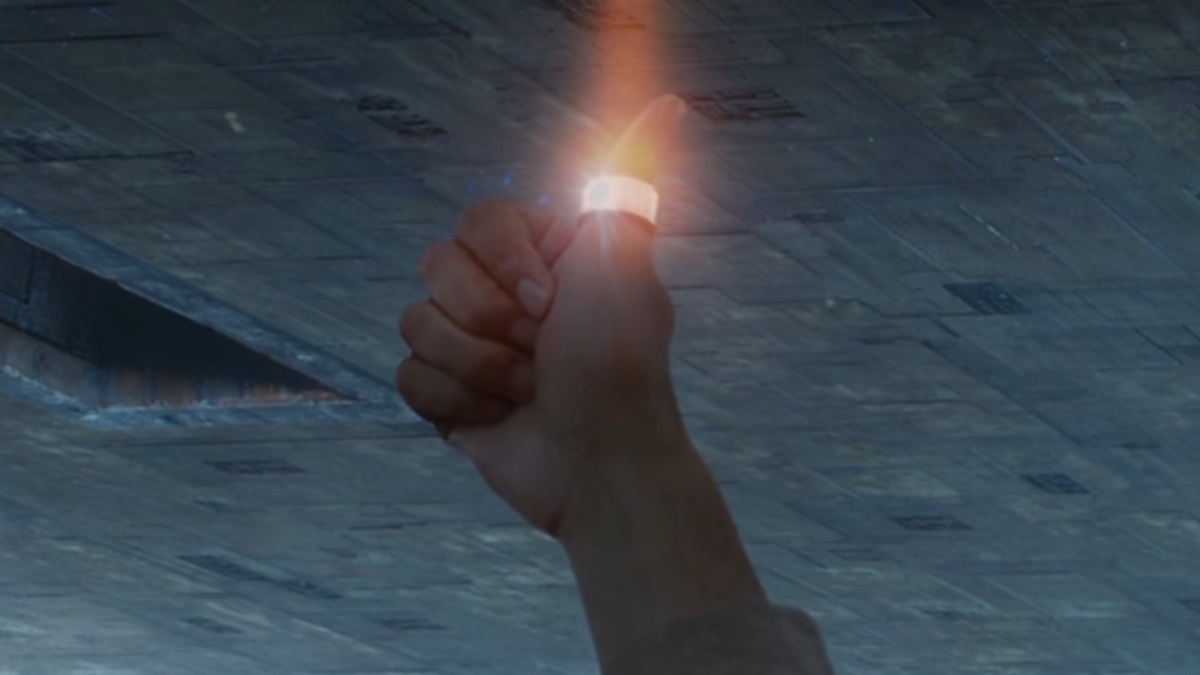
Many die-hard fans of British author Douglas Adams did not embrace the Hollywood-ified film version of his comedic sci-fi novel The Hitchhiker's Guide to the Galaxy, released in 2005. But the movie remains an endearing, and rather adorkable, rendition of Adams' cosmic and comic visions. The story follows an ordinary man, Arthur Dent (played in the movie by Martin Freeman) who is whisked away to space after Earth is scheduled for immediate demolition. He embarks on an adventure to discover the meaning of life with an alien friend (Mos Def), his crush from Earth (Zooey Deschanel), a depressed robot (Alan Rickman), and the President of the Galaxy (Sam Rockwell). With a sharp sense of humor and impressive effects, The Hitchhiker's Guide to the Galaxy gets a thumbs up even if most Adams purists give it a thumbs down.
26. The Harry Potter Series (2001-2011)
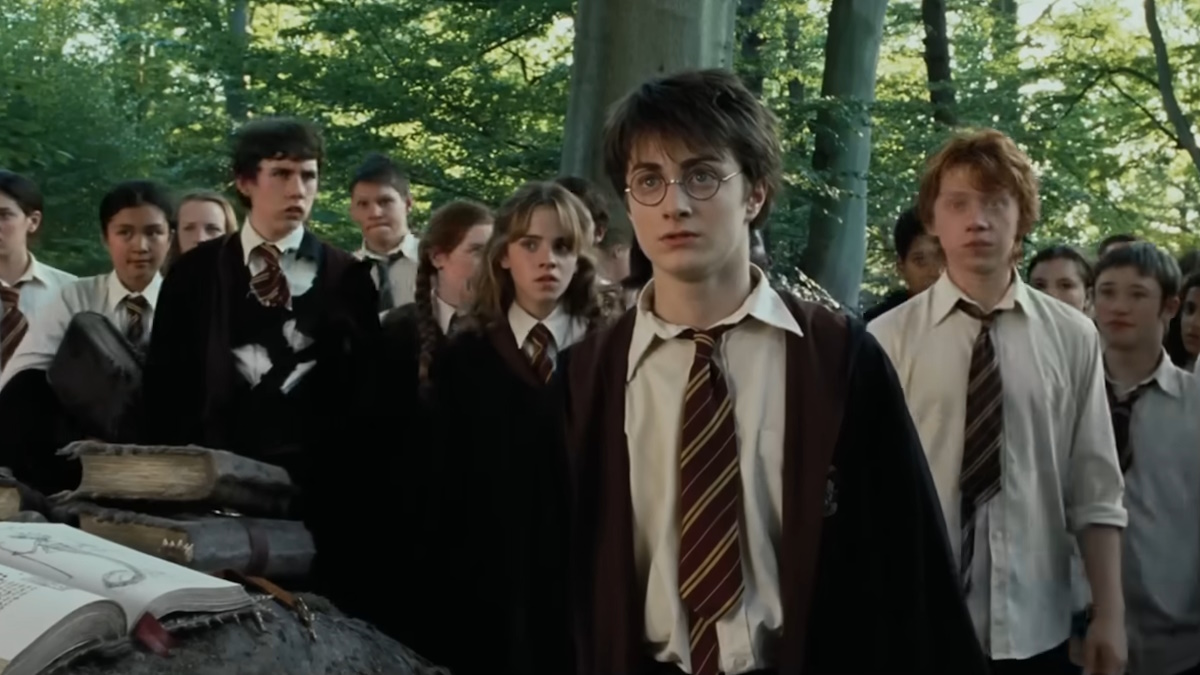
It's hard to deny the impact of J.K. Rowling's Harry Potter books on a generation of readers. And it's actually a marvel how the movies, all eight in total, translated Rowling's beloved coming-of-age story of boyhood and magic for the screen. Beginning with 2001's Harry Potter and the Sorcerer's Stone, the story follows orphaned Harry Potter who learns his parents were great wizards and enrolls at an exclusive academy before fighting the dark wizard who murdered his parents. The final book, Harry Potter and the Deathly Hallows, published 2007, was by no means the end; the movies concluded with a two-part Death Hallows adaptation in 2010 and 2011. The rest of the decade saw new cinematic spin-offs, stage productions, video games, an entire theme park at Universal Studios, and more that expanded the Wizarding World.
25. Schindler's List (1993)
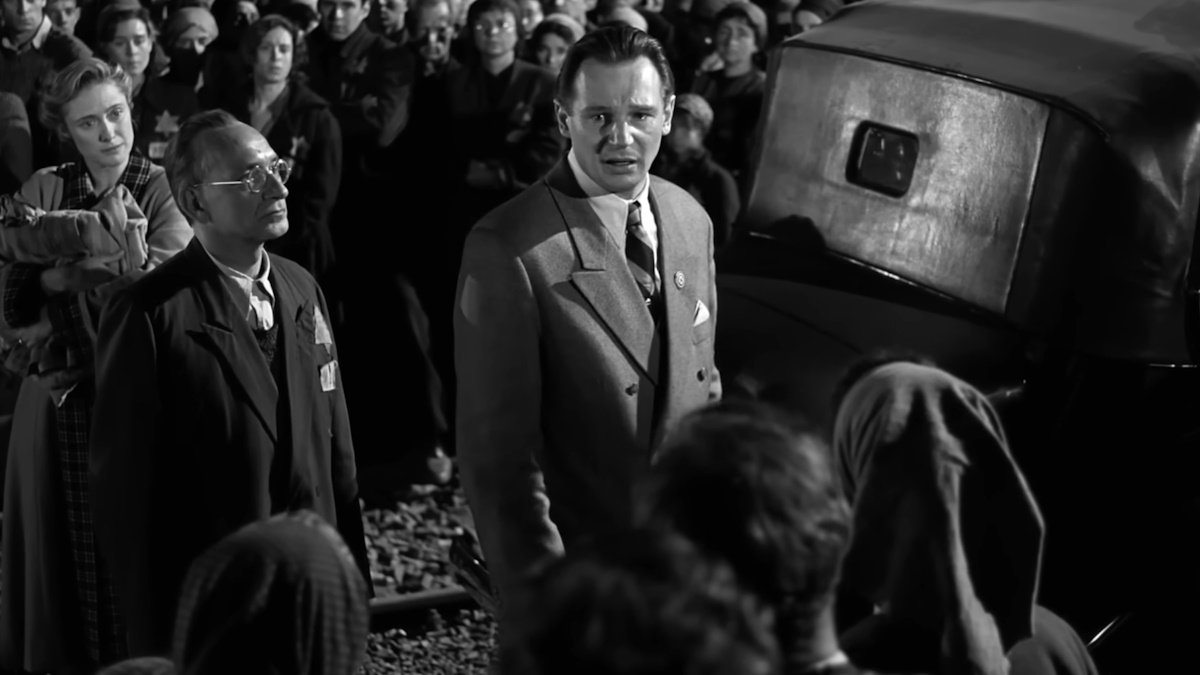
The horrors of World War 2 and the Holocaust was no fiction. Nor was the story of Oskar Schindler, the German wartime industrialist who saved over 1,000 Jewish lives. In 1982, after being prompted by Holocaust survivor Poldek Pfefferberg, author Thomas Keneally wrote a fictionalized record of Schindler's efforts to defy Nazi Germany in the book Schindler's Ark, which in turn became the widely acclaimed movie by Steven Spielberg, Schindler's List. Liam Neeson stars in Spielberg's film as Oskar Schindler, who embarks on a profit-driven enterprise producing enamelware and ammunition for the Nazis before using his influence to save Jewish lives. In 2007, the nonfiction book Searching for Schindler: A Memoir detailed Keneally's efforts to research and interview people who knew Schindler.
24. Annihilation (2018)
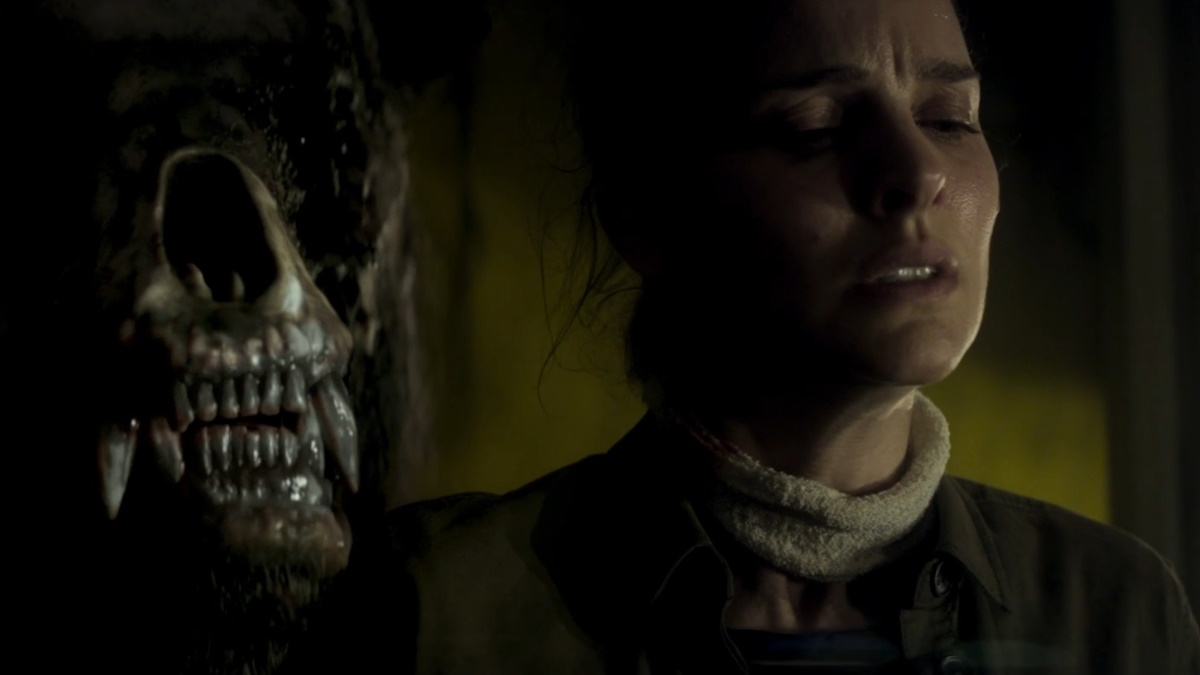
Annihilation, the first book in Jeff VanderMeer's series of sci-fi thrillers – collectively titled Southern Reach – was adapted for the screen in Alex Garland's star-studded film released in 2018. Natalie Portman, Jennifer Jason Leigh, Gina Rodriguez, Tessa Thompson, and Tuva Novotny portray female scientists who enter a zone called "The Shimmer," where the fauna contained inside have started mutating due to an intrusive alien lifeform. Featuring spine-chilling moments and overall handsome creative direction, Annihilation received critical acclaim but not enough attention at the box office; a split distribution deal with Netflix in certain markets hampered the movie's commercial prospects. In the end, the movie didn't make enough to warrant adaptations of VanderMeer's other books, but Annihilation is monstrous on its own.
23. Little Women (2019)
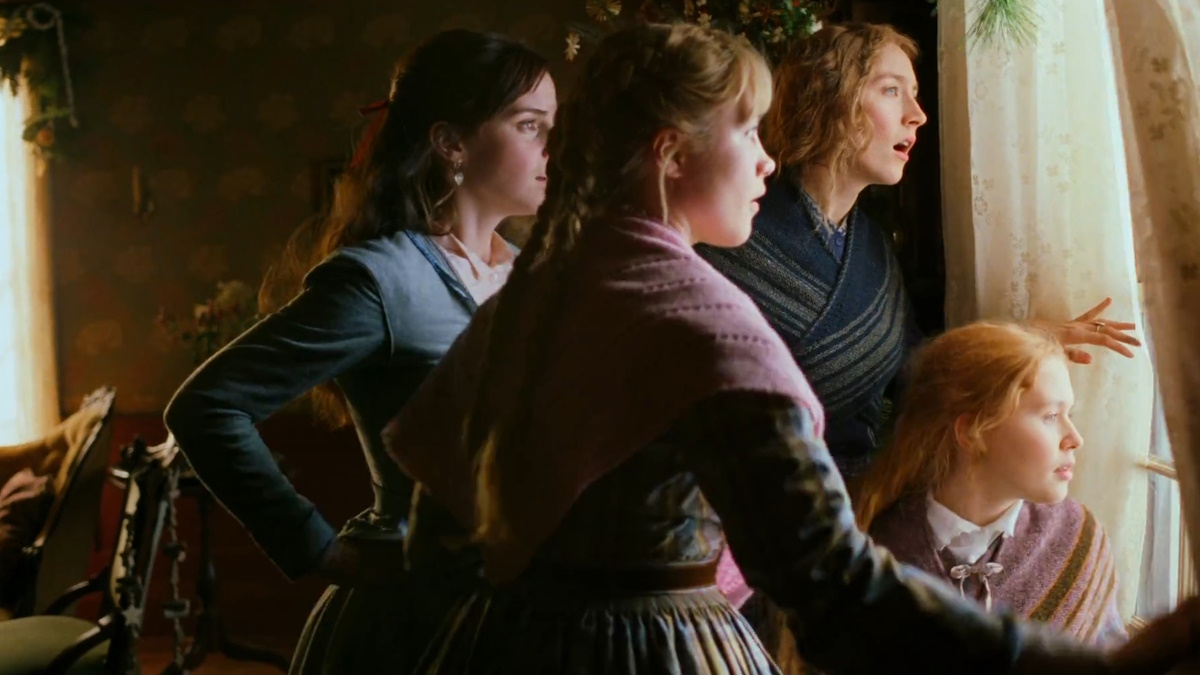
There have been many movies based on Louisa May Alcott's 1868 novel Little Women. But few have been as lively, hilarious, and impeccably designed as Greta Gerwig's acclaimed 2019 adaptation. Hewing closely to Alcott's best-seller, Little Women follows the lives of the March sisters in 19th century Massachusetts; Saoirse Ronan plays Jo, a writer in New York who returns home after her sister Beth (Eliza Scanlen) falls ill. The experience prompts Jo to look back on her upbringing with her sisters, who all came of age during the Civil War. The acclaim received by Gerwig from Little Women allowed her to flex new muscles as a blockbuster director, helming the summer hit Barbie in 2023.
22. Dune (2021) and Dune: Part Two (2024)
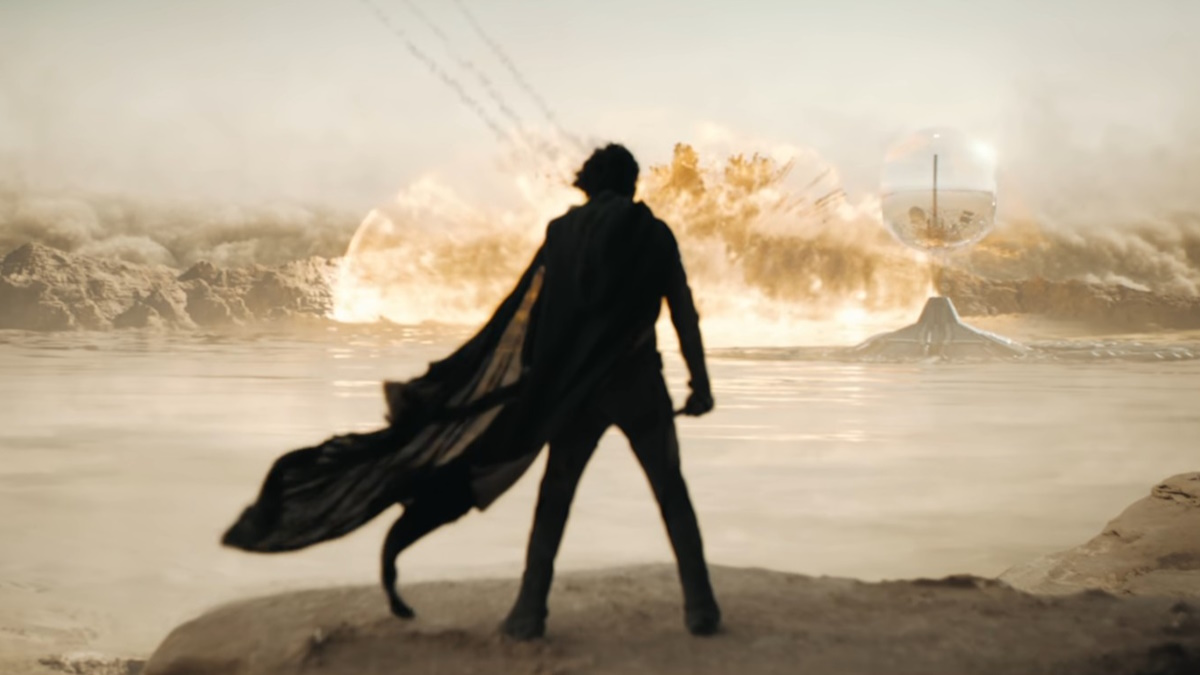
Lisan al Gaib! Frank Herbert's sci-fi epic Dune, which chronicles the alarming rise to power of Paul Atreides over an expansive universe ruled by commerce and superstition, first hit the big screen in a mystifying movie by David Lynch in 1984. Decades later, director Denis Villeneuve helmed a new two-part remake, the first released in 2021 and the second in 2024 (the latter was delayed by widespread labor strikes across Hollywood in 2023). While Lynch's Dune is beloved as a cult film, Villeneuve's Dune movies were certified blockbusters that rippled across mainstream culture like a roving sandworm.
21. The Shining (1980)
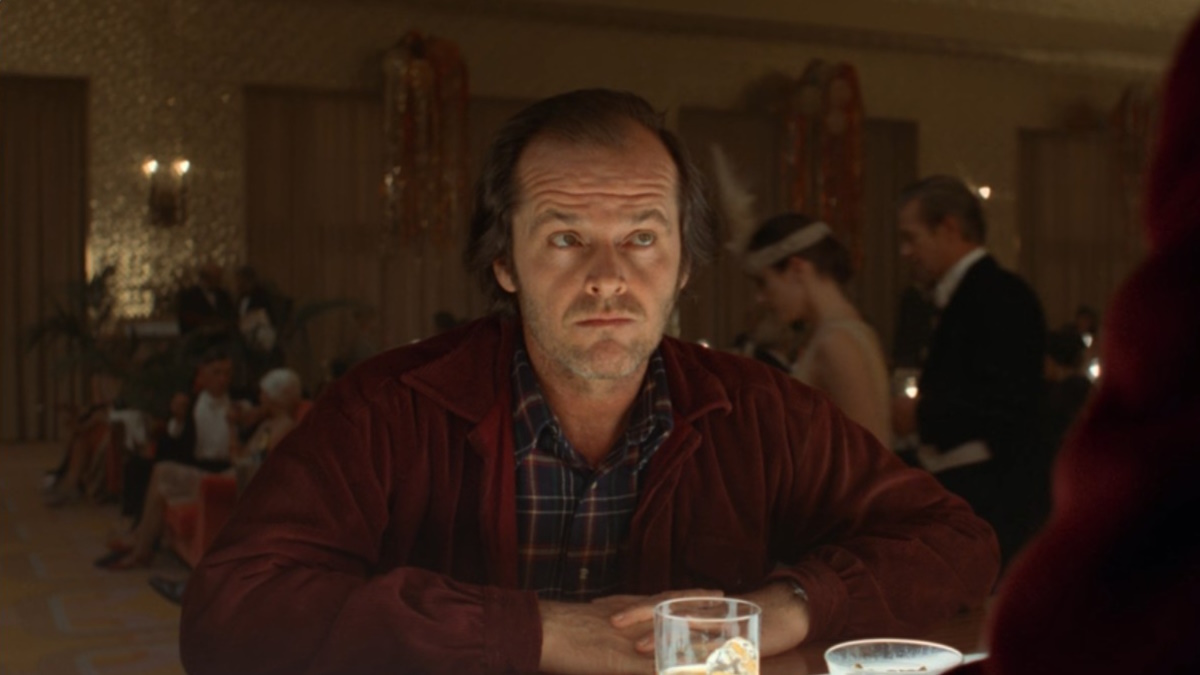
A horror classic about the chilling effects of isolation and the loss of sanity, Stanley Kubrick's The Shining endures as an irreplaceable classic of horror cinema. Based on Stephen King's 1977 novel, Jack Nicholson and Shelley Duvall star as the husband and wife caretakers of a remote Colorado resort. The two succumb to hysteria as their son Danny (Danny Lloyd) winds up a vessel for a malignant supernatural entity. While King has expressed disdain for Kubrick's movie, it hasn't stopped The Shining from assuming its place in the canon of popular culture. In 2019, Mike Flanagan's film version of King's sequel Doctor Sleep paid plenty of homage to The Shining.
20. American Psycho (2000)
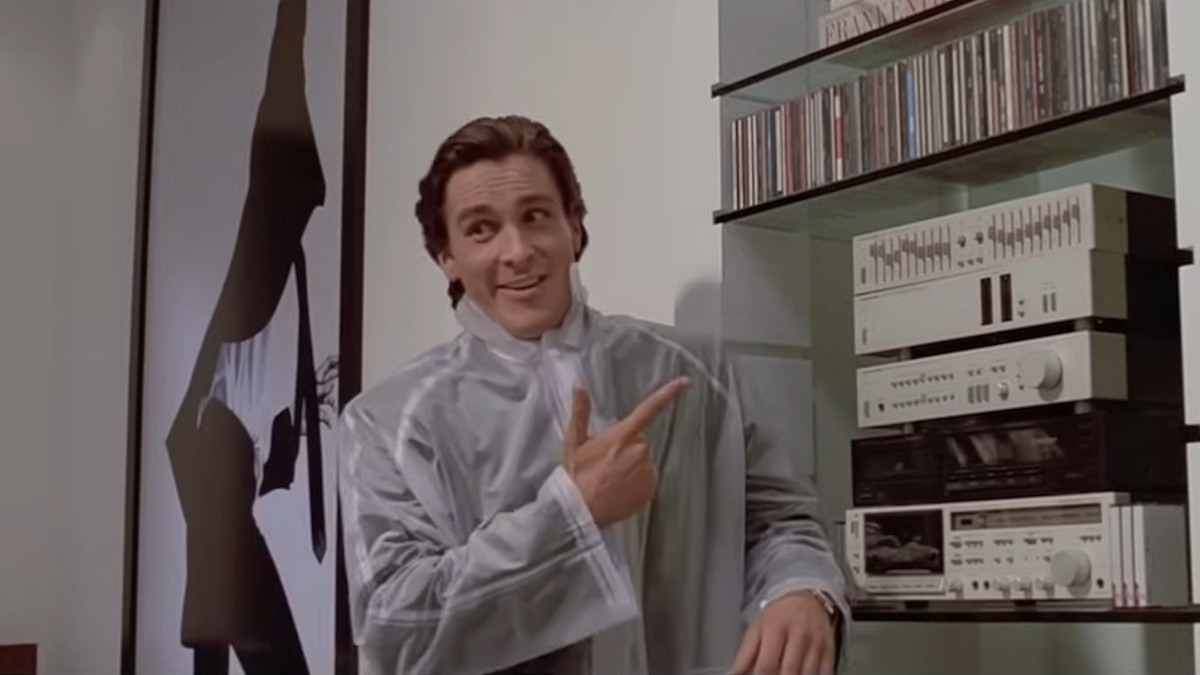
At the height of yuppie culture circa late 1980s, author Bret Easton Ellis wove an indictment of the superficiality of young urban professionals – and in a revealing 2010 interview with The Oregonian, his own self – with his 1991 thriller American Psycho. Told from an unreliable first-person perspective, American Psycho is the story of narcissistic Manhattan banker Patrick Bateman whose boredom with his privileged lifestyle enables him to engage in unspeakable sadistic acts. The book, which earned praise as a transgressive postmodern masterwork, became a cult movie in 2000, directed by Mary Harron and starring Christian Bale.
19. Fear & Loathing in Las Vegas (1997)
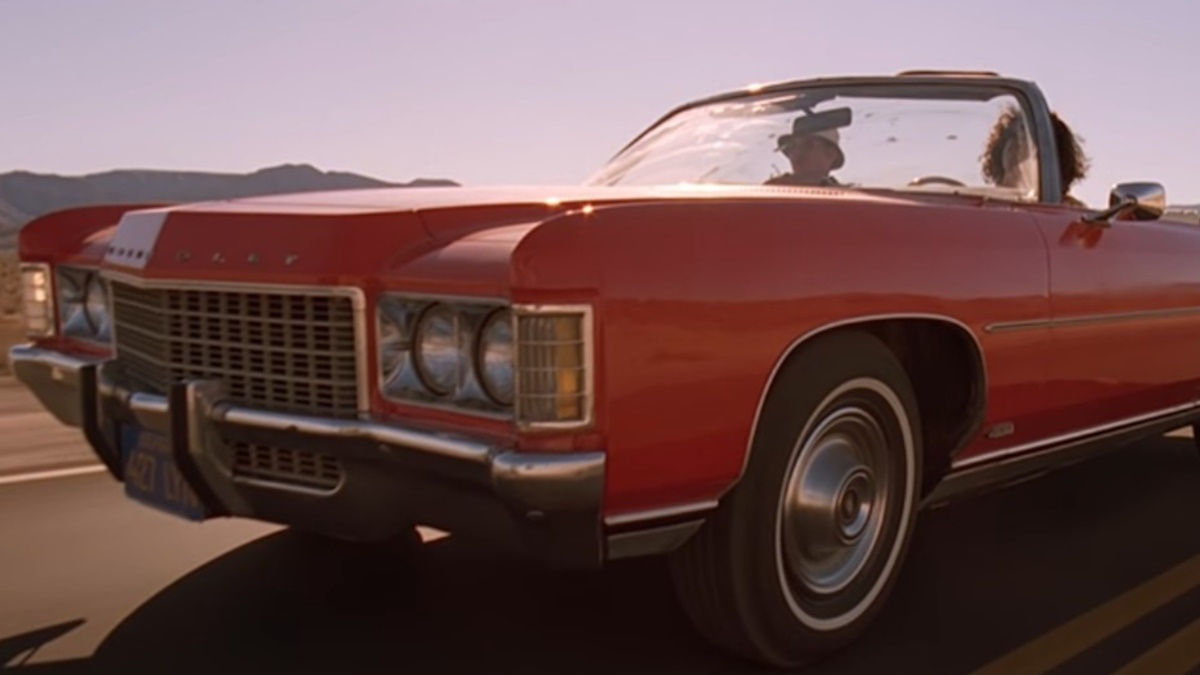
Between March and April 1971, Hunter S. Thompson traveled to Las Vegas with Chicano activist Oscar Zeta Acosta while working on an article for Rolling Stone. Unable to do their work in racially tense Los Angeles, Thompson accepted a gig for Sports Illustrated to cover the '71 Mint 400 in Nevada. Such were the beginnings to Thompson's gonzo novel Fear & Loathing in Las Vegas, his ultimate treatise on the failure of the '60s counterculture movement as America barreled towards political uncertainty of the '70s. The book became an equally acclaimed film by director Terry Gilliam, with Johnny Depp in the role of Thompson's self-insert protagonist Raoul Duke and Benicio del Toro as his accompanying attorney. Both versions of Fear & Loathing in Las Vegas are hallucinogenic monuments to America's disorienting excess.
18. The Girl with the Dragon Tattoo (2011)
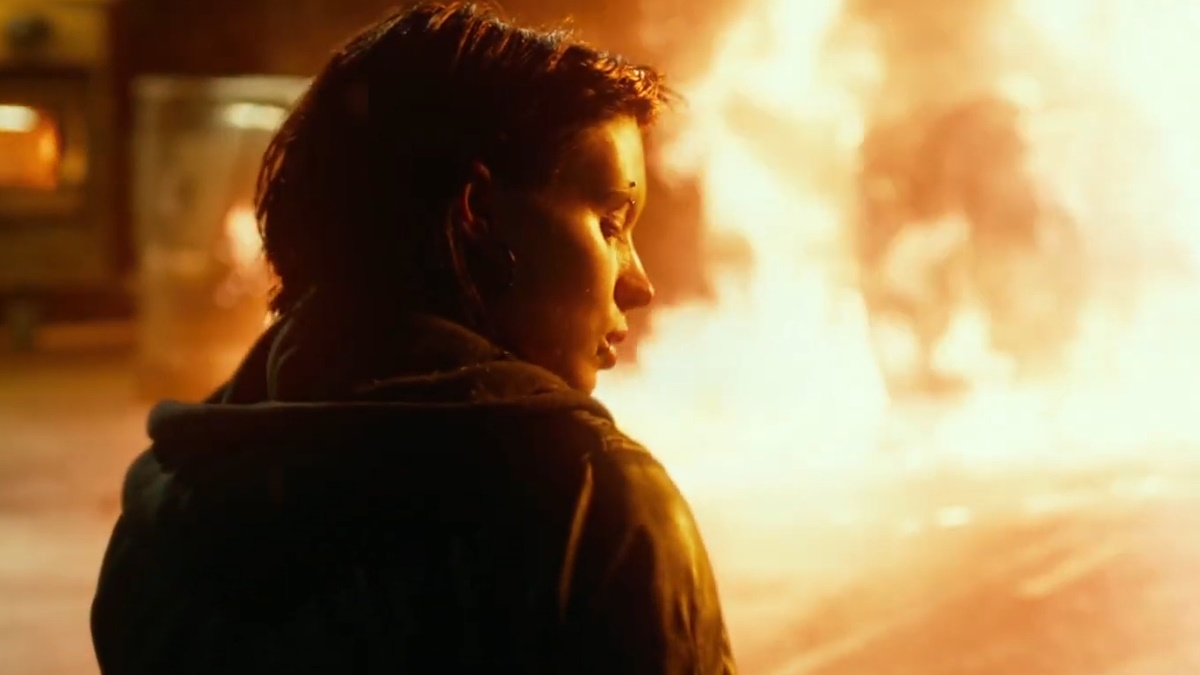
Swedish writer and journalist Stieg Larsson died before his book The Girl with the Dragon Tattoo – a psychological, techno thriller and first in his "Millennium" book series – became an international best-seller. Following a trilogy of adaptations in Sweden, with Noomi Rapace as the series' signature character Lisbeth Salander, David Fincher helmed a Hollywood adaptation of The Girl with the Dragon Tattoo in 2011 with Daniel Craig and Rooney Mara in the lead roles. The story tells of a disgraced journalist who teams up with a tattooed rebel hacker to track down the long-missing scion of a wealthy family. Critics heaped praise on Fincher's movie, though the movie's uneven financial performance barricaded more sequels based on the Millennium series.
17. Pride and Prejudice (2005)
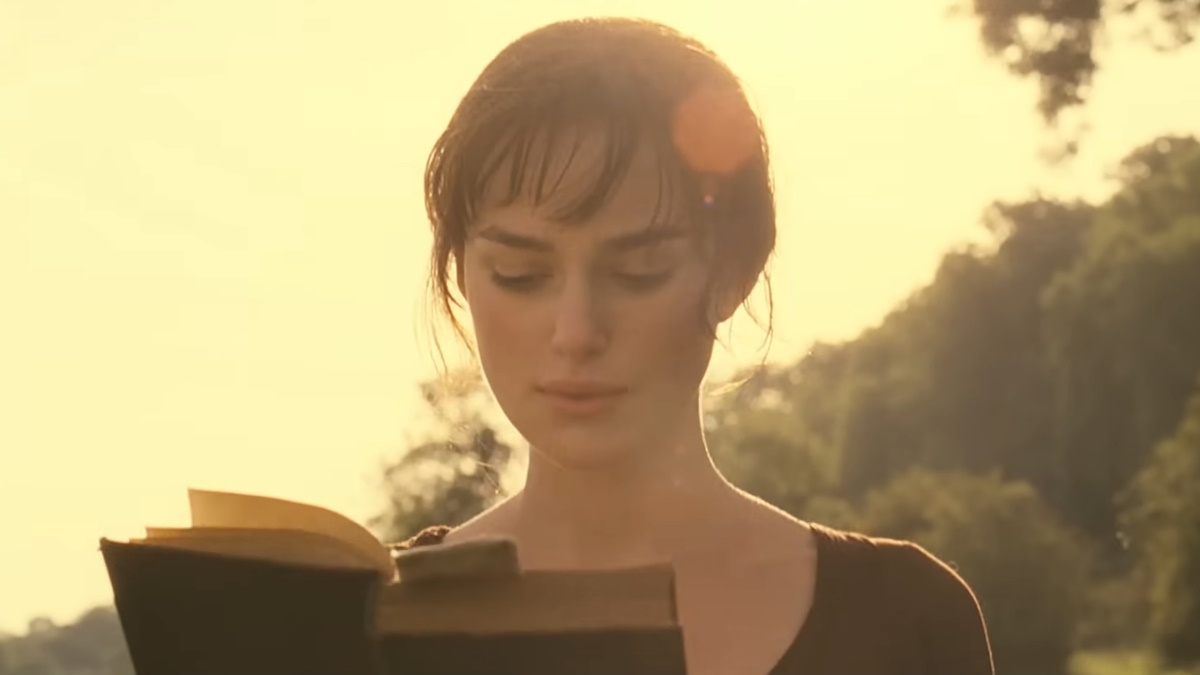
It is not hard to find a movie based on Jane Austen's works, and especially not her universally beloved classic Pride and Prejudice from 1813. But of the dozens to choose from, the sunkissed 2005 version directed by Joe Wright is perhaps the platonic ideal as a moviegoing experience. Just as it unfolds in Austen's classic, Pride and Prejudice follows headstrong Elizabeth Bennet (played by Keira Knightley) who rejects handsome yet antisocial Mr. Darcy (Matthew MacFadyen) before slowly falling in love. If you know a high school student struggling to get through Austen's book, invite them to watch Wright's film to help them get the basics down.
16. Frankenstein (1931)
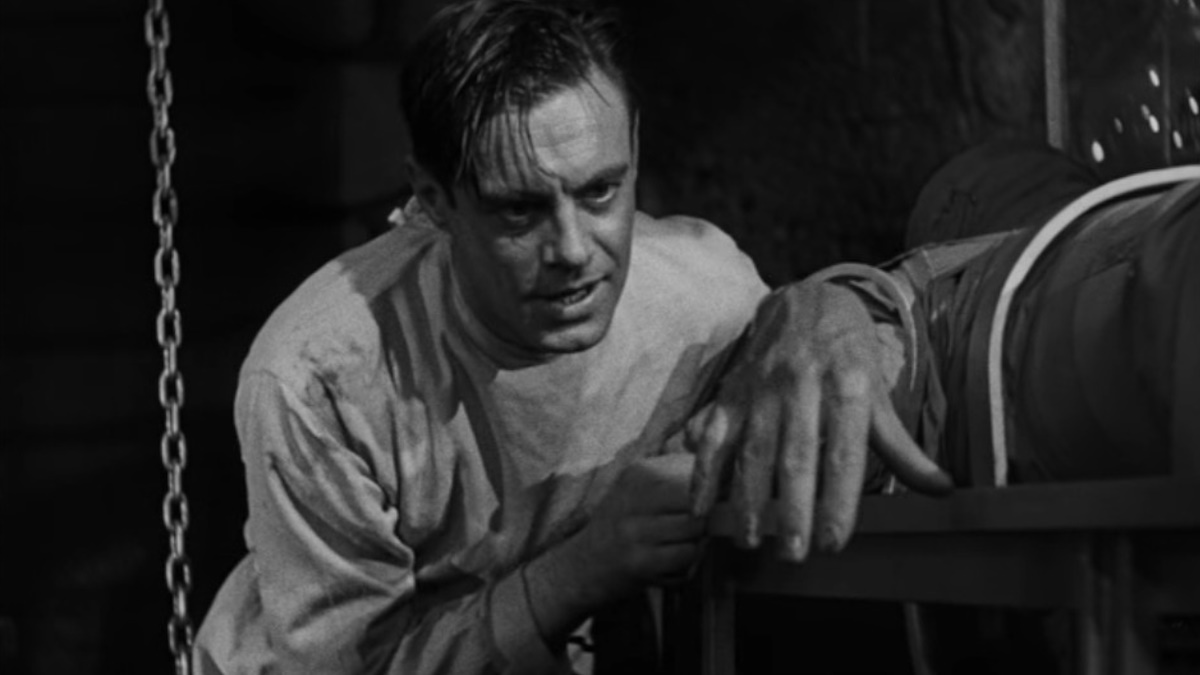
Mary Shelley is widely recognized for inventing the science fiction genre. She did it with her 1818 novel Frankenstein, about a mad scientist who brings to life an artificial man made from the severed body parts of various deceased. This iconic monster and Halloween costume staple was brought to the screen first in a 1910 silent movie before Universal Studios' iconic 1931 production directed by James Whale and starring the indelible Boris Karloff. Not only did the '31 Frankenstein spawn one of Hollywood's earliest movie franchises, it's an unexpectedly moving horror-thriller that supposes evil isn't always born but almost always made.
15. Willy Wonka & the Chocolate Factory (1971)
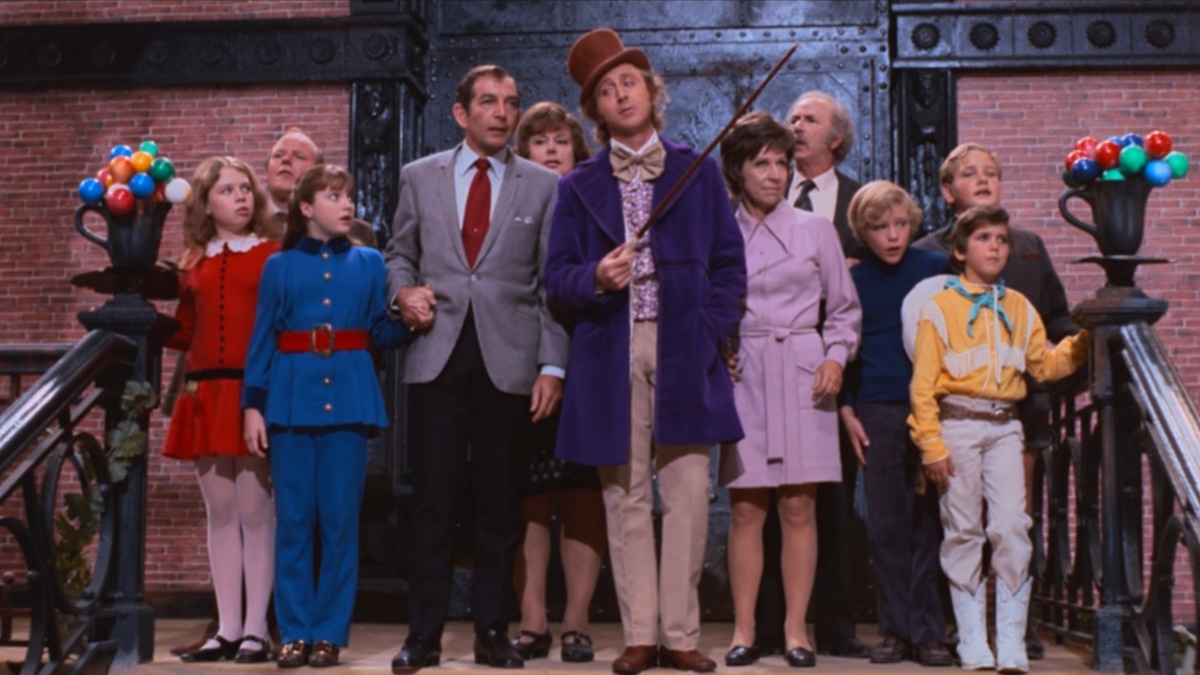
So many of Roald Dahl's timeless books for children have been adapted into incredible movies. But only one of them has a golden ticket to stand the test of time: Mel Stuart's 1971 musical adaptation of Charlie and the Chocolate Factory, retitled Willy Wonka & the Chocolate Factory. Its story, about a good-natured boy named Charlie whose once-in-a-lifetime visit to a mysterious chocolate factory sees his sense of right and wrong challenged at every turn, has made Willy Wonka & the Chocolate Factory a multi-generational classic that has never lost its sweet tooth.
14. Die Hard (1988)
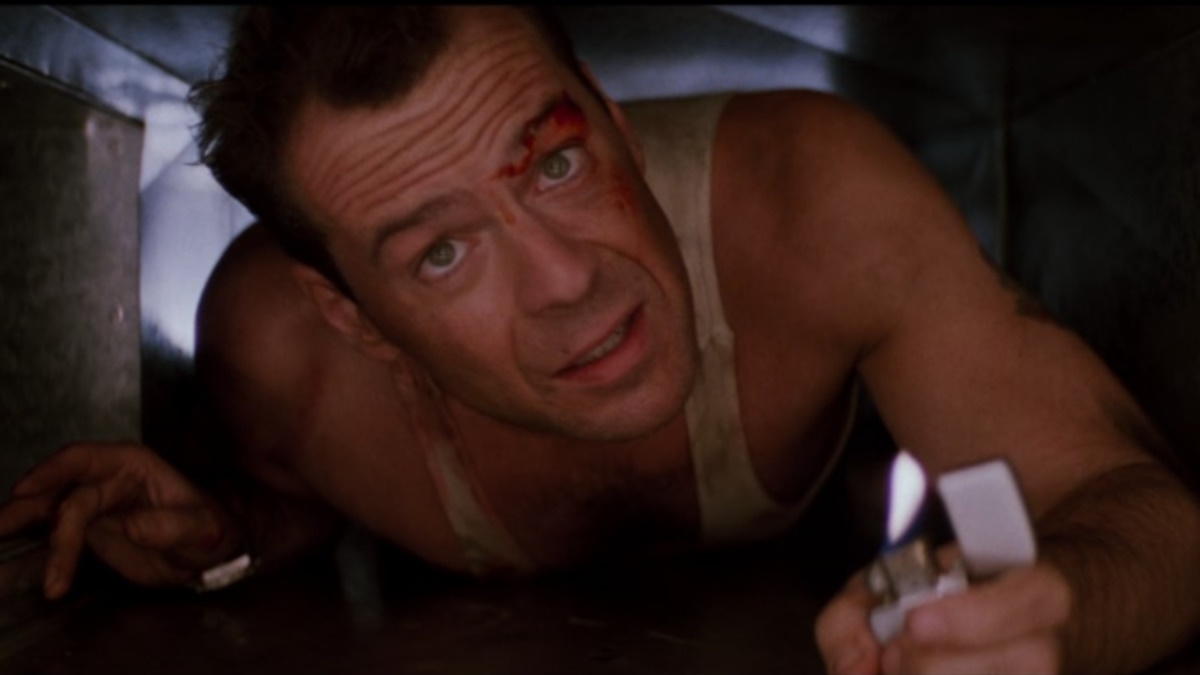
Yes. Really. One of the greatest and most violent action movies of all time is actually based on a book. No kidding! Originating from Roderick Thorp's 1979 novel Nothing Lasts Forever, John McTiernan's Die Hard follows a tough New York cop John McClane (Bruce Willis) who, while visiting his estranged wife at an office Christmas party, gets trapped in a Los Angeles skyscraper when the party is crashed by terrorists. While the original novel has a much darker ending, Die Hard survives as a macho yet sentimental action classic that really comes alive at yuletide.
13. One Flew Over the Cuckoo's Nest (1975)
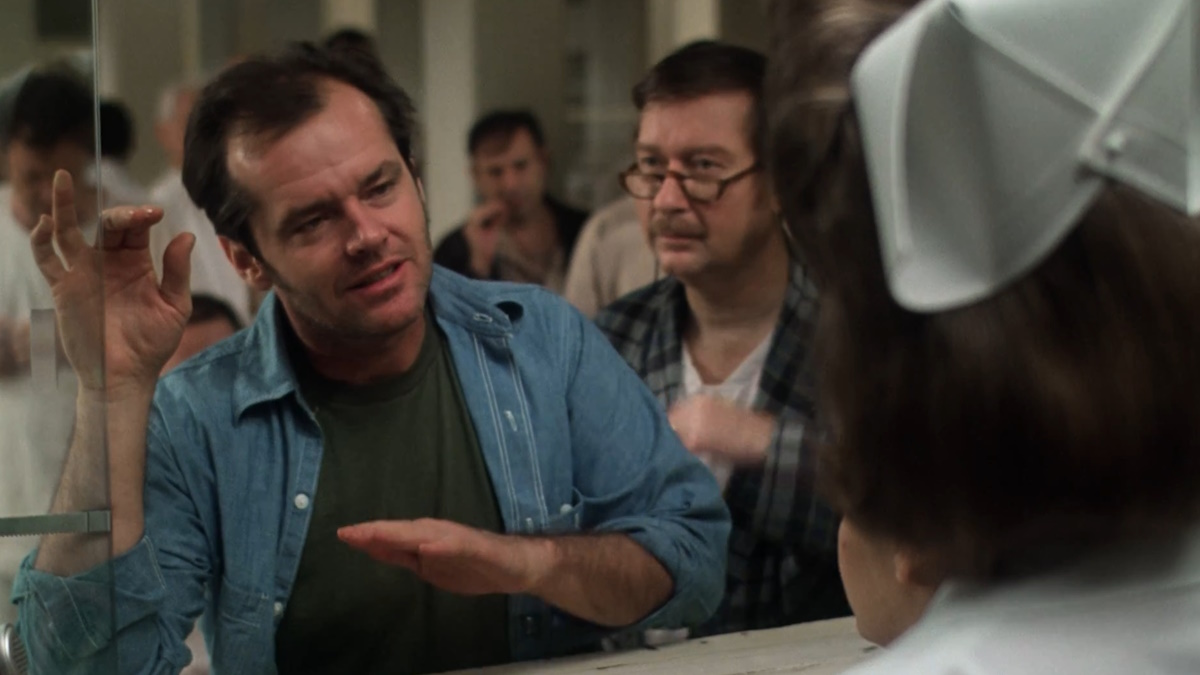
Jack Nicholson embodies defiance in the face of overwhelming control in his role as Randle McMurphy in Miloš Forman's dramatic classic One Flew Over the Cuckoo's Nest, based on Ken Kesey's novel from 1962. The movie follows Randle, a new patient who rebels against the iron grip of Nurse Ratched (Louise Fletcher) at an Oregon mental institution. A portrait of the virtues of non-conformity and how life's delights are the only medicine anyone ever needs, One Flew Over the Cuckoo's Nest is also a rather faithful adaptation of Kesey's novel, which serves as a critique of psychiatry and champions individualism.
12. Fight Club (1999)
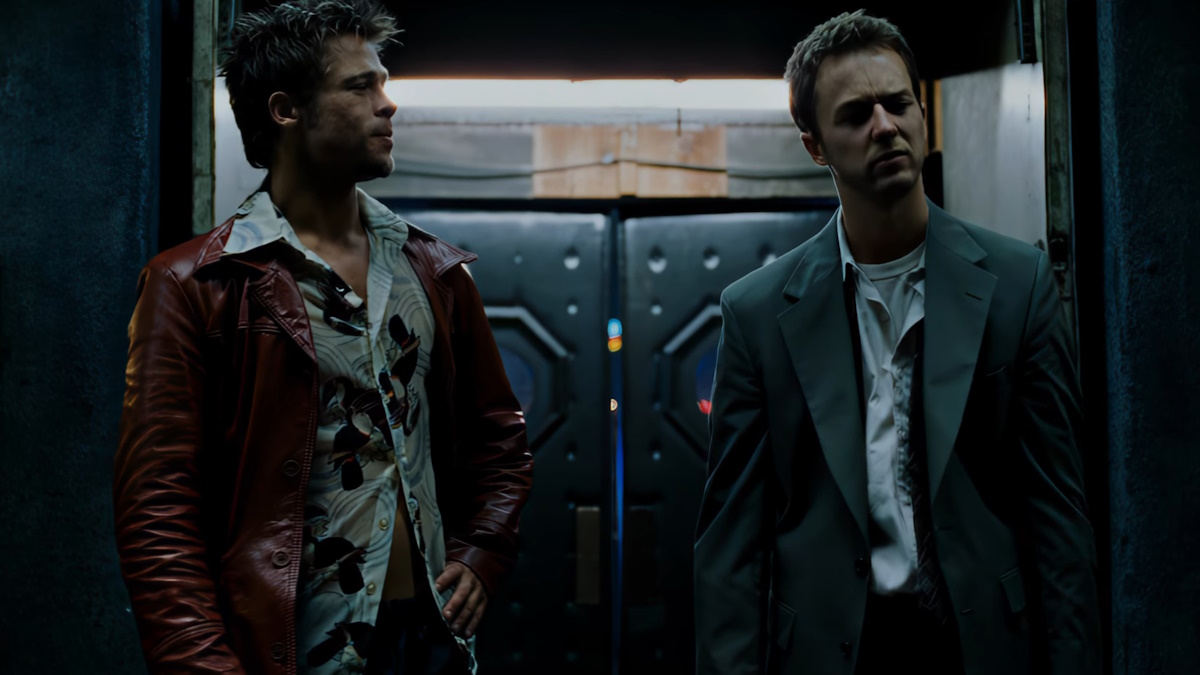
While a lot of audiences may miss the point, Fight Club – both its acclaimed cult movie from 1999 and the source 1996 novel by Chuck Palahniuk – is still the ultimate portrait of male loneliness, mental illness, anticonsumerism, and the importance of getting some sleep. In both versions, an unnamed protagonist suffering from insomnia befriends a mysterious, charismatic man named Tyler Durden (played by Brad Pitt in the movie), who together establish an underground fight club for men as a substitute for therapy. After Fincher's film bombed in theaters, the movie – with its memorable twist ending – eventually won over a dedicated audience who, in their own way, couldn't stop talking about Fight Club.
11. To Kill a Mockingbird (1962)
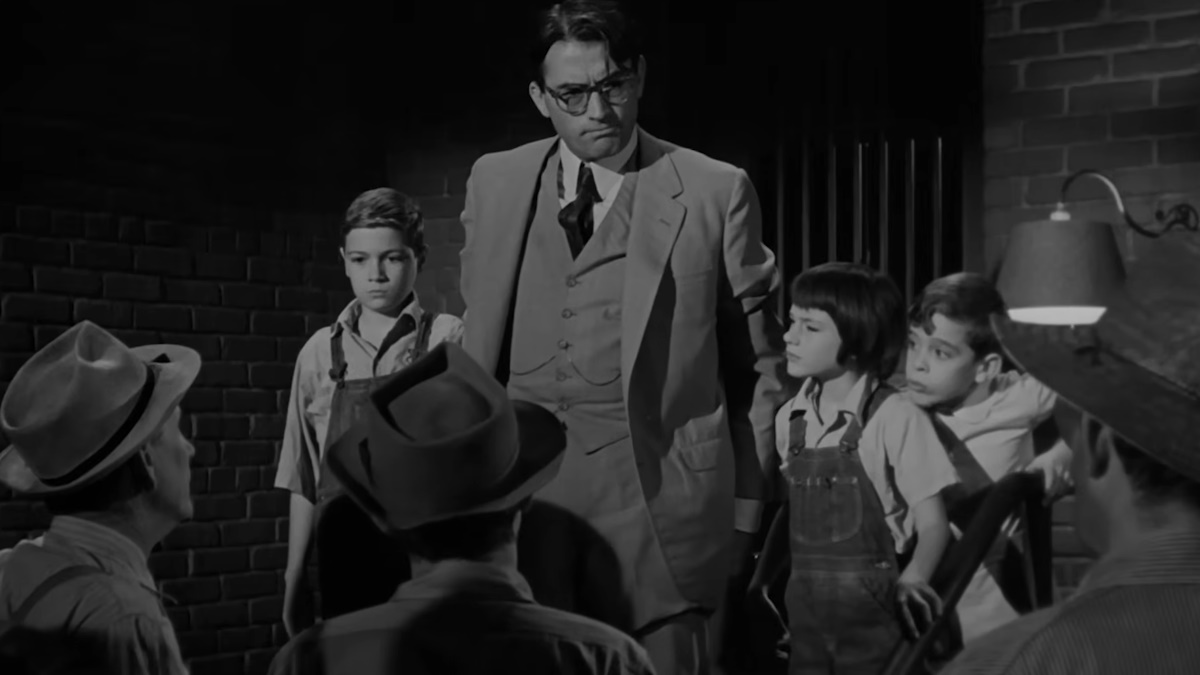
For the longest time, To Kill a Mockingbird was Harper Lee's only novel until the publication of Go Set a Watchman in 2015, a controversial "sequel" published right before Lee's death in 2016. The story tells of a lawyer, Atticus Finch, who defends a Black man accused of assaulting a white woman in 1930s Alabama. Harper's controversial yet celebrated piece of American literature was adapted for the screen in Robert Mulligan's equally seminal film. Gregory Peck puts in an unforgettable performance as Atticus, who serves as a moral compass for his young daughter Scout (Mary Badham).
10. The Princess Bride (1987)
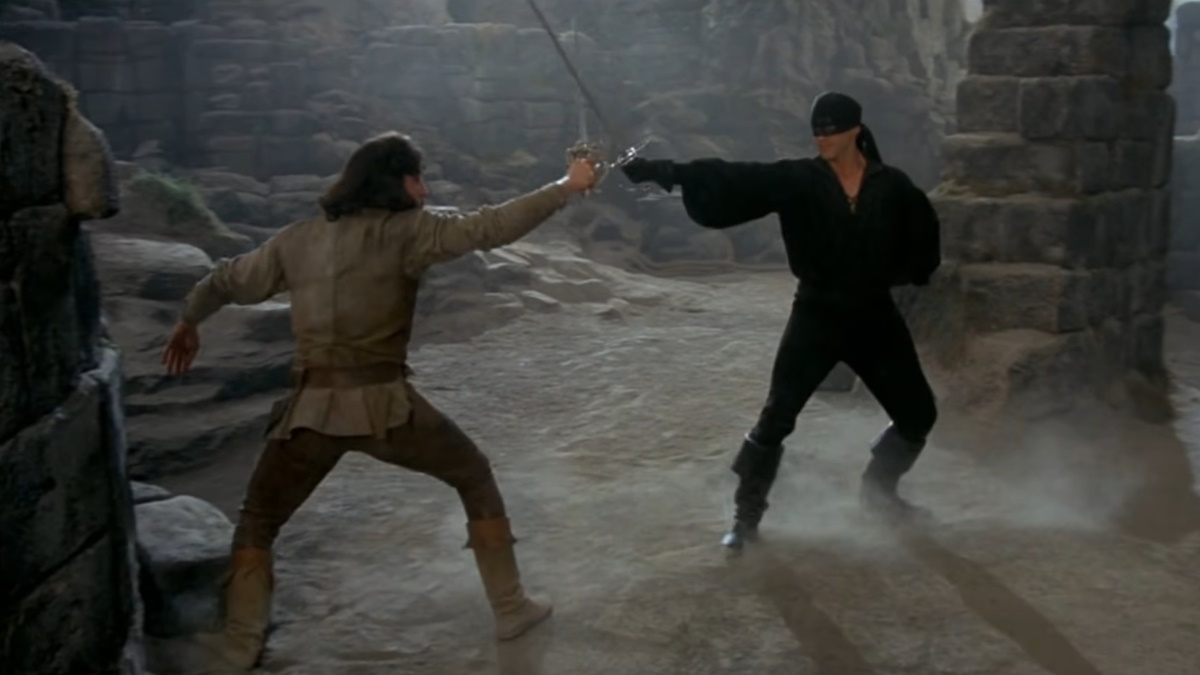
Screenwriter William Goldman doubled as both a screenwriter and a novelist, with his name attached to the scripts of award-winners like Butch Cassidy and the Sundance Kid and All the President's Men. As a novelist, he wrote the romantasy The Princess Bride: S. Morgenstern's Classic Tale of True Love and High Adventure, The "Good Parts" Version, published in 1973. Ostensibly an abridged version of an oral story, it tells of a pre-Renaissance farm girl who is rescued from marrying an evil prince by her former servant Westley, now a dashing swashbuckler. The Princess Bride became a generational classic movie in 1987, with Robin Wright and Cary Elwes in the lead roles as part of a story framed through a grandfather telling his bored grandson (Fred Savage) a bedtime story. Truly, it is inconceivable to imagine a world without The Princess Bride.
9. Bram Stoker's Dracula (1992)
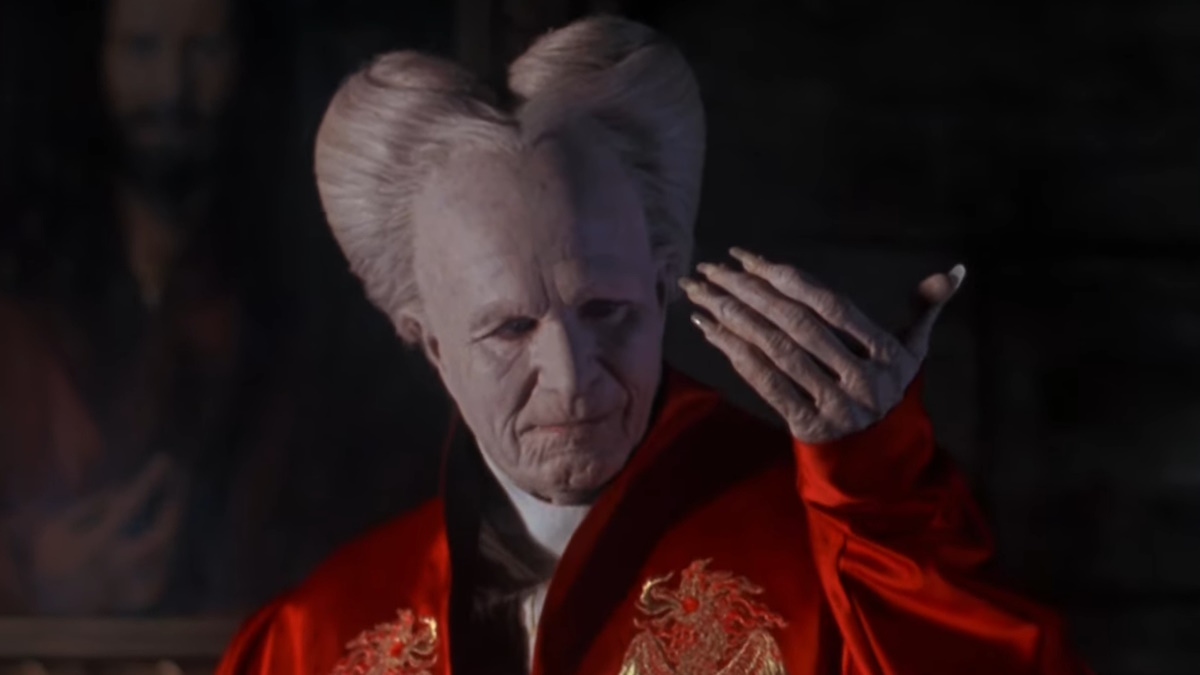
While there are many iconic movies based on Bram Stoker's 1897 novel Dracula, from the 1931 Universal classic starring Bela Lugosi to the Hammer production Horror of Dracula in 1958, the 1992 movie by Francis Ford Coppola warrants special attention. A resplendent realization of Bram Stoker's gothic classic, Bram Stoker's Dracula sees Keanu Reeves and Winona Ryder lead as Jonathan Harker and Mina respectively, as they end up caught in the long-nailed grips of Count Dracula (Gary Oldman). There's no shortage of Dracula movies to pick from, but Coppola's tactile and even titillating interpretation of Stoker's story is a standout.
8. The Lord of the Rings Series (2001-2003)
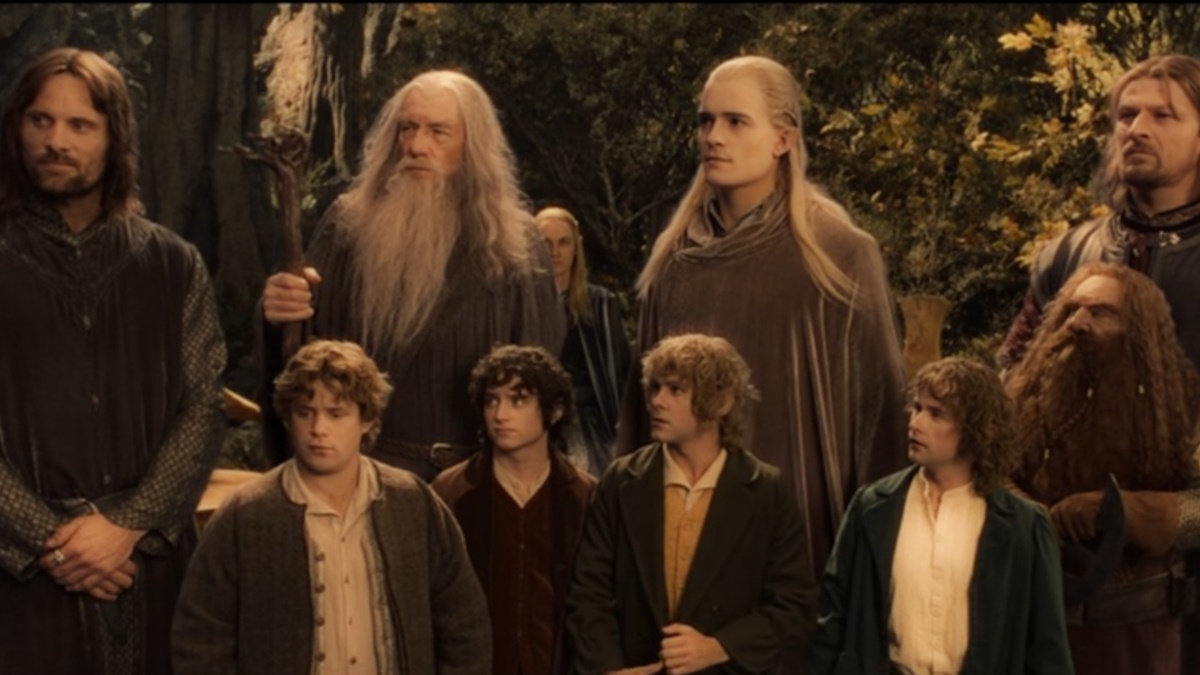
Decades after animated versions of J.R.R. Tolkien's The Lord of the Rings came from Rankin/Bass and Ralph Bakshi, director Peter Jackson undertook the ambitious challenge of adapting Tolkien's high fantasy saga for the big screen. The end result is simply one of the greatest cinematic trilogies of all time, a tale of adventure, bravery, camaraderie, and purpose against an all-too-powerful evil which threatens all. Across an arduous six-year ordeal, Tolkien's story was turned into a trio of tour de forces that boast not only creative achievements but technical ones too; Lord of the Rings is shoulder-to-shoulder with Jurassic Park and Titanic as a pathfinder in the world of visual effects.
7. The Great Gatsby (2013)
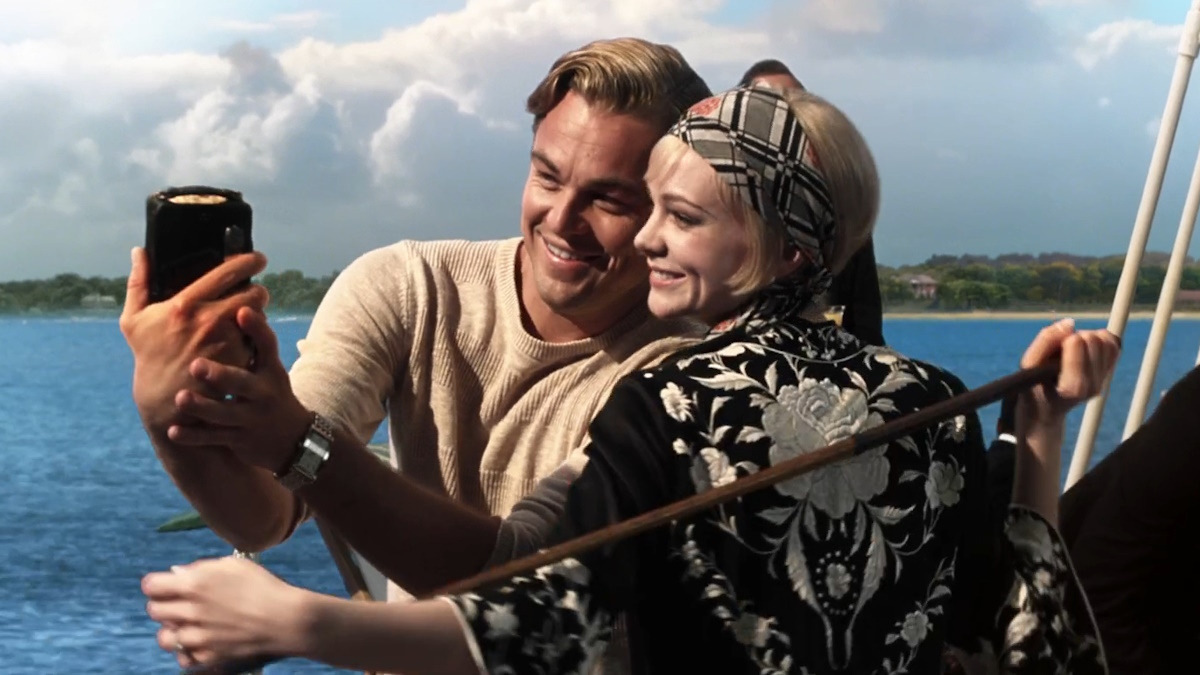
Baz Luhrmann maximalism brings to life F. Scott Fitzgerald's literary classic The Great Gatsby, originally published in 1925. Leonardo DiCaprio dons the bespoke suits of millionaire Jay Gatsby, who befriends the main narrator, Midwestern expat Nick (Tobey Maguire), the distant cousin of the effervescent Daisy Buchnan whom Gatsby has his eye on. Living up to Fitzgerald's storytelling that depicts the callous hedonism of the idle rich during the Jazz Age, Luhrmann cranks up his typically excessive style as he goes for Baroque on an American touchstone. Pity those who have it all.
6. The Exorcist (1973)
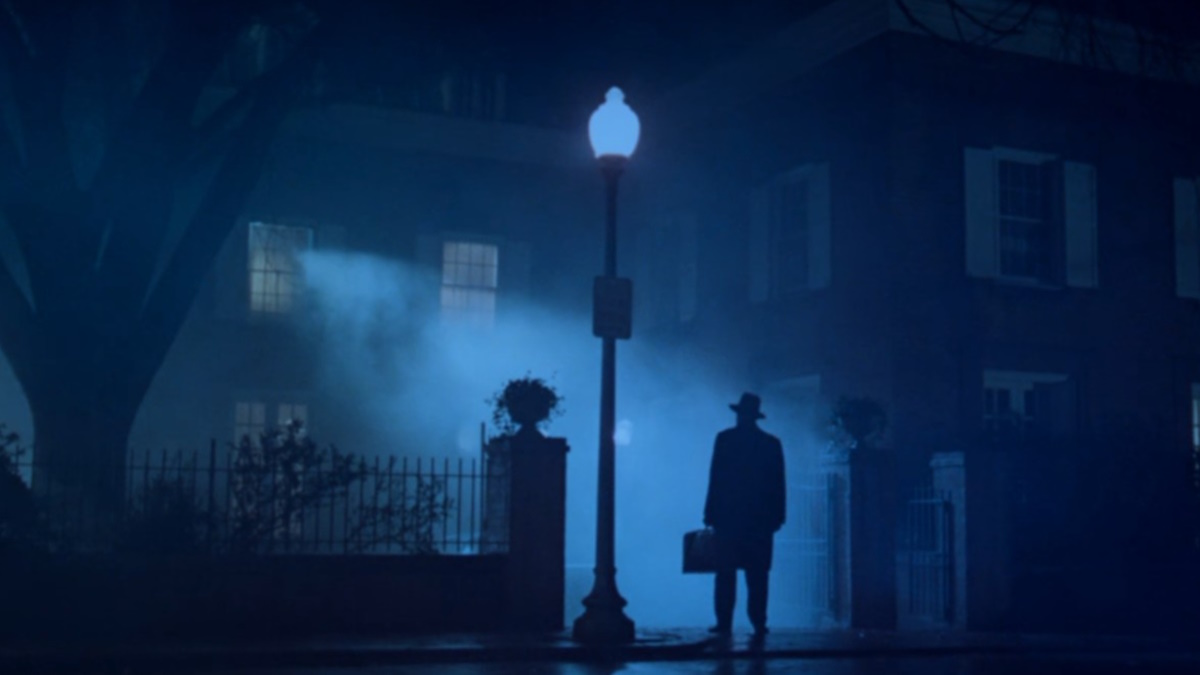
When The Exorcist hit theaters in 1973, America was in the grips of a newfound paranoia. In the aftermath of the counterculture '60s, modern society had grown more secular, not to mention a wider presence in Satanism across rock music and the heinous crimes of serial killers. It was this atmosphere that William Peter Blatty wrote his 1971 novel The Exorcist, about a Jesuit priest who handles the case of possible demonic possession of a young girl in Washington D.C. In 1973, William Friedkin helmed the legendary adaptation (Blatty wrote the screenplay), which forever raised the bar for horror movies. A seismic hit, the popularity of The Exorcist drew long lines outside theaters everywhere, predating a similar phenomenon wrought by Star Wars a few years later. The Exorcist brought the horror genre firmly into the mainstream, simultaneously frightening and impressing moviegoers with its hair-raising scares and gross-out special effects and makeup.
5. Blade Runner (1982)
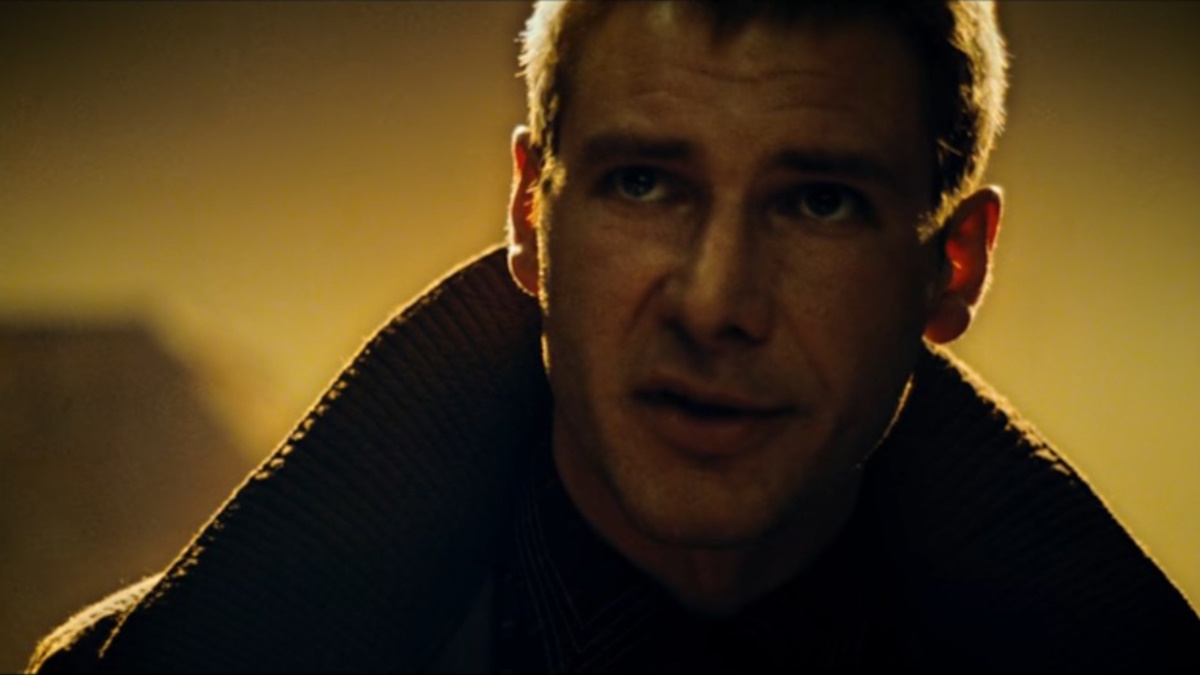
While Ridley Scott didn't get to deliver his ultimate version of Blade Runner until 2007, his 1982 sci-fi noir is still a prominent touchstone of not only 1980s cinema but sci-fi as a whole. Based on Philip K. Dick's 1968 novel Do Androids Dream of Electric Sheep?, Scott's movie follows a burnt-out bounty hunter, Rick Deckard (Harrison Ford) who is tasked with tracking down a particularly violent android "replicant" (Rutger Hauer). The ordeal inspires Deckard to begin questioning his own nature and reality. While Scott's smoggy and neon-coated masterpiece deeply departs from Dick's novel, both stories share bleak visions of a then-distant future, one where the convenience of artifice has made the value of authenticity practically priceless.
4. Jurassic Park (1993)
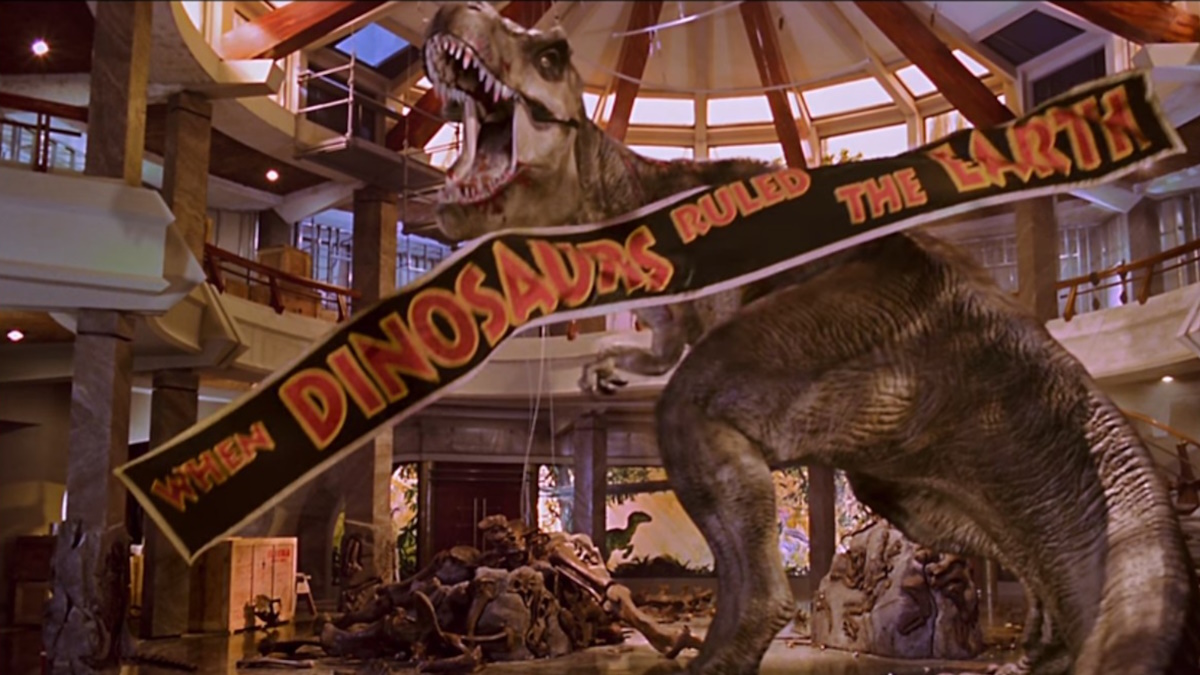
Life, uh, finds a way. In 1990, Michael Crichton wrote Jurassic Park, a hit novel of speculative science fiction that posits the need for a conscience in the pursuit of science. Not long after its publication, Steven Spielberg realized Crichton's story – ironically, with cutting-edge visual effects that represented the peak of technology and artistry – in his 1993 blockbuster movie adaptation. Like the novel, the movie takes place in a soon-to-open theme park where dinosaurs have been scientifically resurrected. A group of expert archaeologists, scientists, and other visitors on a preview tour predictably run for their lives after the dinos break free from the park's security systems. Crichton was a prominent novelist even before writing Jurassic Park, but the success of the movie cemented his voice as an authority in the genre of tech-based thrillers.
3. The Godfather (1972)
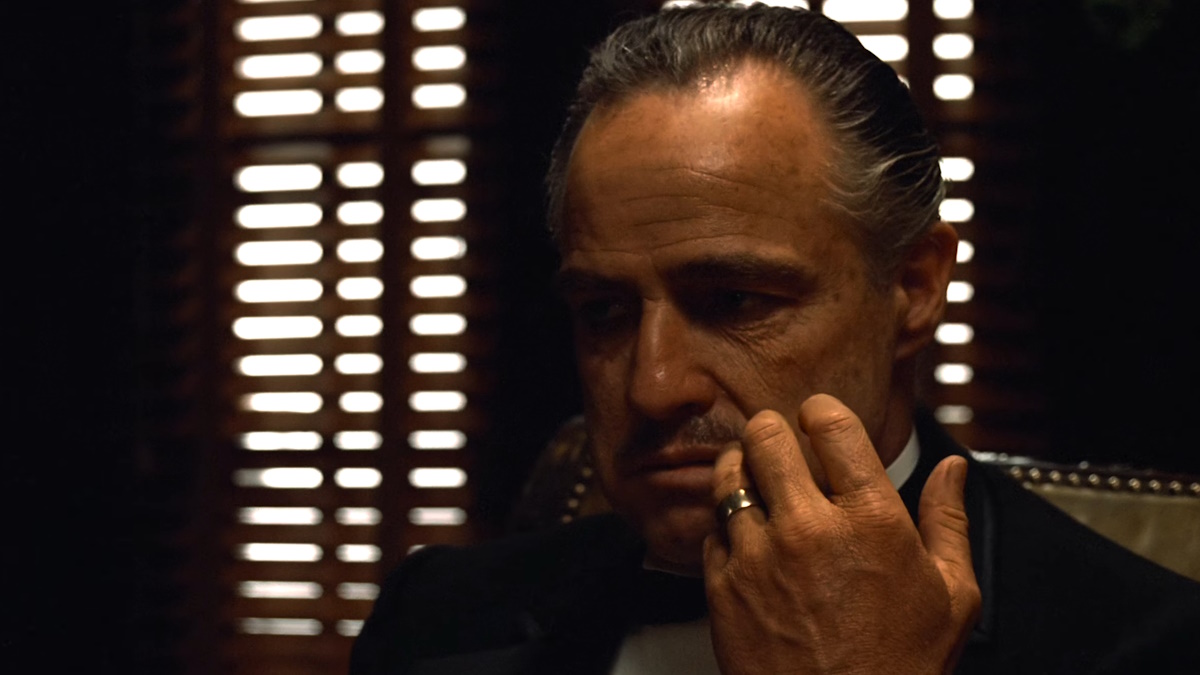
An invincible masterpiece in American cinema, Francis Ford Coppola's The Godfather – starring both Al Pacino and Marlon Brando – has roots in a 1969 best-selling crime epic by Mario Puzo. Though Puzo was born to Italian immigrants in New York City and grew up in Hell's Kitchen, Puzo insisted during his lifetime that he researched the world of Italian organized crime and did not draw from any personal experience. Nevertheless, Puzo's novel was a massive hit when it was published, introducing terms like consigliere and omertà to an English-speaking mass public. When Coppola got his hands on Puzo's story, the alluring world of the Italian mob became its own subgenre in American cinema, inspiring more gangster film classics while captivating the world with the reluctant rise to power of one Michael Corleone. Leave the gun, and take the cannoli.
2. The Wizard of Oz (1939)
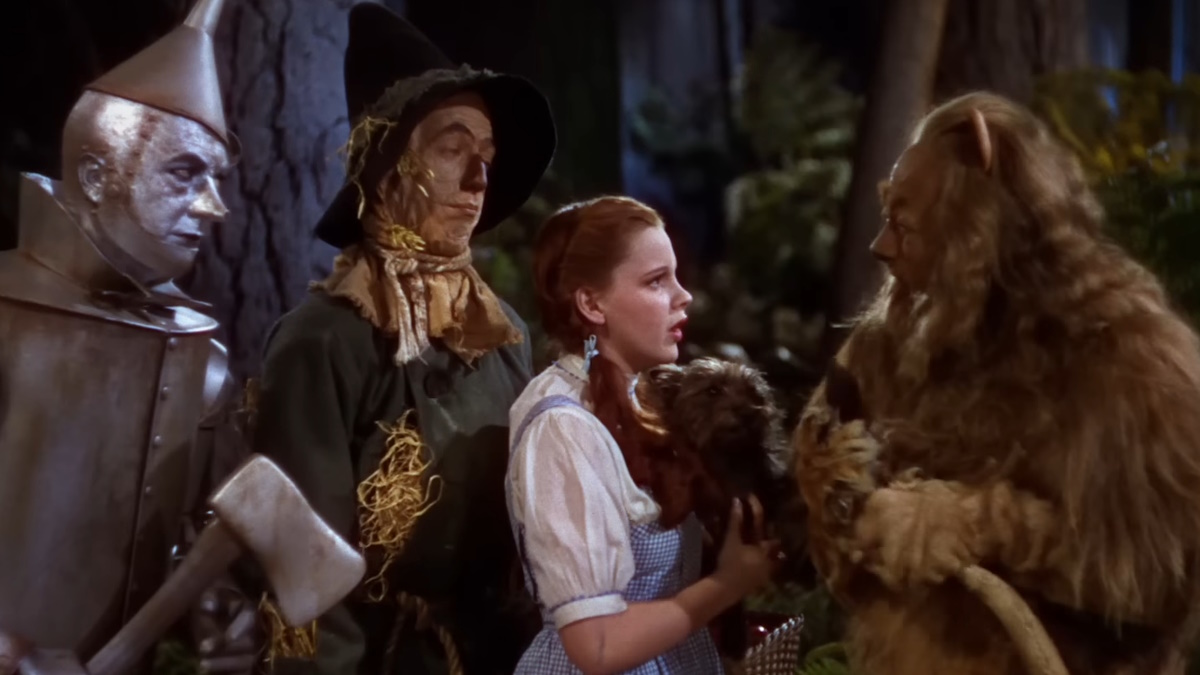
Although Victor Fleming's revered fantasy musical The Wizard of Oz was not an immediate hit in 1939, today it's impossible to imagine a colorless world where it did not fly over the rainbow. The story originates in L. Frank Baum's novel from 1900, which chronicles Dorothy, flung from her Kansas farm by a tornado to the magical land and befriends a group of eccentric beings as she tries to get back home. Baum's novel was a hit in its own right when it was published in 1900, prompting a series of countless official and unofficial sequels. In 1995, Gregory Maguire authored Wicked, which served as an origin story for the Wicked Witch which has in turn been adapted for Broadway and spawned its own cinematic adaptations.
1. Jaws (1975)
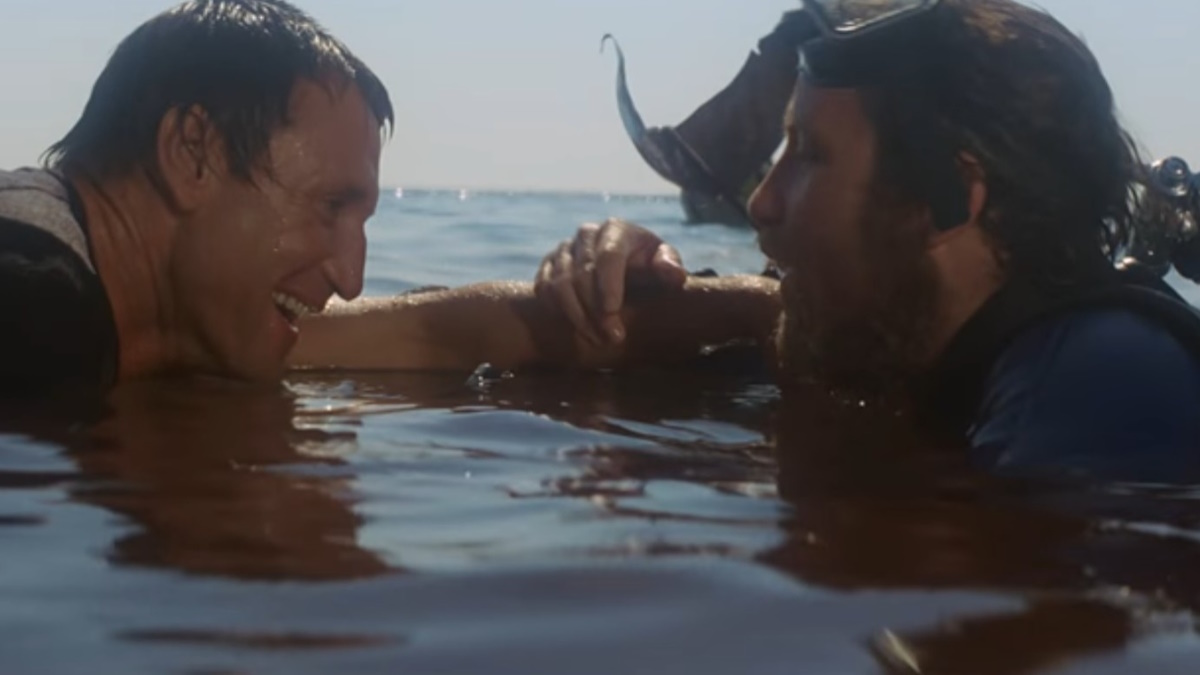
The iconic movie poster of Jaws, where a monstrous shark lurks beneath an unsuspecting swimmer, has roots on the hardcover book that inspired Jaws in the first place. Before Steven Spielberg came along, Jaws was a best-selling thriller novel by Peter Benchley, who was inspired by the exploits of real-life shark fisherman Frank Mundus. Like the movie, the book tells of a man-eating shark terrorizing a Long Island resort town (differing from the movie's New England setting), prompting a group of men to find and kill it. Before it was published, word of mouth about the book's potential reached producers at Universal, who secured the movie rights and tapped Spielberg to direct. (Another part of the deal: Benchley was given first crack at the screenplay.) The movie removes a lot of Benchley's novel's subplots, but Benchley himself makes a cameo appearance as a TV news reporter.

Eric Francisco is a freelance entertainment journalist and graduate of Rutgers University. If a movie or TV show has superheroes, spaceships, kung fu, or John Cena, he's your guy to make sense of it. A former senior writer at Inverse, his byline has also appeared at Vulture, The Daily Beast, Observer, and The Mary Sue. You can find him screaming at Devils hockey games or dodging enemy fire in Call of Duty: Warzone.


